

How to Get Your Captain’s License –A Step-by-Step Guide
From captain requirements to the coast guard application process – how to navigate the process of becoming an official boat captain.

Like all other areas of professional endeavor, getting a Captain’s license is an essential and non-trivial process. Despite the years between my earliest thoughts on having one and actually applying…or perhaps because of that time…I am quite proud to call myself Captain !
From the time I was Quartermaster aboard the Chesapeake Lightship back when she was berthed in Washington, DC, I had wanted to get my Captain’s license. We in her crew had plenty of sea time. The late Capt. Joe Murray, John Hart, and particularly Chris Krusa saw to it that each of us developed our skills and knowledge beyond the minimum that we needed for our jobs. We met collectively with a Coast Guard officer to explore the options for us all getting licensed; however, the wind was taken out of our sails so to speak when he told us that since most of us were not 18, we were not entitled to take the written exam.
I left that session crestfallen but I put it all behind me as I moved on with a career in research physics. Later, I learned that what the officer SHOULD have said is that if we had just waited (a few months) until we turned 18, we could have taken the exams. Years later, my problem was that I could not meet the requirement to have 90 days of sea time in the last 3 years. My employer would have more than frowned on my having been gone so often. And all of us had not even bothered to ask for sea service forms or letters to document our time on the Chesapeake.
Fast forward 34 years and serendipitous events led to my being able to get signed sea service forms for my time on the Lightship. Shortly thereafter, I became a boat owner WITH vacation time afforded to a very senior engineer in the company.
Long story short, I am Capt. Rob Chichester – 200 Ton Master with Auxiliary Sail and Assistance Towing Endorsements.
Navigating the path to a Captain’s license can be full of the brambles of regulations, forms, and oddly worded requirements. In this article, I will try to clarify the process and help interested skippers decide what type of license, scope, and tonnage they should pursue. Then I will discuss the application process and all the elements needed to assemble a successful license application package.
More Resources: If you would like a one-on-one consultation to have your specific questions answered on this topic or others related to boating, please sign up for 30 minute video consultation with me!

The Basics of a Captain’s License
A first time applicant will need to decide while type of license to pursue. There are two types available to one applying for a new license.
- You may apply for a license to be an Operator of Uninspected Passenger Vessel (OUPV) or the more familiar “Six Pack” license. It is so called because the holder of this license is limited to carrying no more than 6 paying passengers on any vessel within his tonnage rating regardless of the maximum capacity rating for the vessel.
- The other option is a Master’s license which allows you to carry up to the maximum number of passengers indicated for the vessel in question. Whereas a Master’s license requires US Citizenship, an OUPV license holder can be non-US citizen. Clearly holding a Master’s license offers more opportunities; however as I will explain later, the knowledge requirements are appropriately greater.
The scope or route for one’s license is the waters in which you are authorized to function in your licensed capacity.
There are effectively three such areas defined:
- The first is Inland which covers all inland rivers and bays not otherwise outside the demarcation line for the high seas. This may also include portions of the Great Lakes up to the International boundary line. (I will not explicitly discuss the Great Lakes or Western Rivers in this article but those waters are also covered by an Inland scope with a specific endorsement for each.)
- The second route is near-coastal which means ocean waters not more than 200 miles offshore. By extension, a near-coastal route endorsement includes inland waters as well.
- Lastly, Oceans refers to all waters seaward of the Boundary Lines as described in 46 Code of Federal Regulations (CFR) Part 7.
Tonnage rating is determined by the size vessels upon which an applicant has served. The tonnage is not simply the weight or displacement of a given vessel. It is not how much stuff you had loaded on a boat. It is a calculation of theoretical displacement if the complete available interior volume of a ship were filled with material of density 1 (i.e., water).
There are formulas available to estimate that based on the dimensions and type of boat. The calculations are necessarily different for a sailboat and a power boat. On a very rough order of magnitude, a 100 Ton powerboat would be about 80 feet long and a 100 Ton sailboat would be about 100 feet long. The tonnage rating is a not to exceed limitation.
One need not necessarily serve on a 50 ton or 100 ton vessel to earn the equivalent tonnage rating (see the table below for specifics on that). One cannot be granted more than a 100 Ton rating on an initial license because higher tonnage requires that one has served in a licensed capacity before applying for the higher tonnage. When I renewed my license in November, I applied for a 200 Ton rating which was granted conditional to my successfully passing the mandated written test. By the time you read this, I expect to have taken that exam.
Tonnage and route are determined by one’s documented experience. While you may apply for a 100 ton rating, you may only be granted 50 tons (or less) if your experience does not justify the higher rating. Additionally, the greater the scope, the more sea time is required to qualify for the rating.
For example, while an Inland scope needs 360 days of total sea time with 90 days in the last 3 years, a near-coastal scope requires 720 days and again the 90-day recency requirement. The take-away here is that experience is a big determinant and should NOT be discounted in any way. Note that there is no path to being granted an Ocean scope except by being a licensed mate or master for at least 2 years with documented service on those waters. That is, it is impossible to apply for an Oceans scope on a first application.
It should be noted that an OUPV license is automatically issued with a 100 Ton rating. As coarse as this may sound, the reason is that it is assumed that with an OUPV license, the most damage one can do is to 6 people. Therefore, there is no particular benefit to issuing OUPV with varying tonnage ratings. New Master’s licenses are issued with ratings of 25, 50, or 100 tons. Discussions of ratings over 100 tons or Ocean routes are beyond the scope of this article. You may contact the author if you wish more information on those specific topics.
The table below is a guide to determining for what rating one may qualify.
Your Sea Time Experience
For a Near Coastal route, ideally, all of your time will be on Near-Coastal waters; however, you are allowed to substitute up to half of the 720 days required minimum with Inland route service. For the purposes of documenting sea time for a Near Coastal route, any time served beyond the 3-mile limit counts for that purpose. So if you charter in the Caribbean or crew on an offshore fishing trip, that time counts.
Just to be clear, sea time is not counted unless you are a working member of the crew of the vessel named on the sea service form. That is to say, just being a passenger is not sufficient.
To keep things on the up and up, the applicant is required to get the signature of the owner, manager, or master of the vessel on the sea service form. If the applicant owns the identified vessel, proof of ownership must accompany the form. Proof might be a Bill of Sale, vessel document, or a state registration.
Sea time is not counted unless you spend at least 4 hours of a given day underway . Being onboard the boat at the dock swabbing the decks does not count. Time underway is counted whether it is in route or adrift. Being anchored or moored also does not count. It can be tedious to collect and collate all of your sea service forms, especially after the fact. My best advice is even if you are only thinking about getting a license, keep blank sea service forms with you for the vessel operator to sign at the end of a trip. Note that the forms are not per trip but per vessel. There is room to document up to 5 years of sea time on any given vessel. There is room for five years of data because your license will be up for renewal every 5 years .
Technically, vessels over 200 gross tons now require a Service Letter from the employer or vessel manager. However at the time I applied for my original license, I submitted my time on the Chesapeake Lightship on a Sea Service form (CG-719S). That form was accepted for that as well as again when I renewed and requested an upgrade to 200 Tons. I may have been grandfathered so new applicants should verify their individual situations with the National Maritime Center .
Health and Medical
To be a Captain, one must be in good health and of reasonable physical ability. The Medical form ( CG-719K ) is the most extensive form one will need to complete. It also requires the signature of a licensed physician. Unlike an FAA pilot’s license, the physician need not be approved by the US Coast Guard. Your family doctor is acceptable.
For my part, I completed as much of the form as was reasonable. I then FAXed the form ahead of my annual physical so that the doctor could review what was needed and to be prepared to sign off on it. The only extra thing the doctor had to do was conduct color vision and standard wall chart vision test. Your vision need not be perfect without glasses but if that is the case, you should expect a requirement to be written on your license requiring corrective lenses to be used and a spare pair to be available when on duty. If your medical form is accepted, you will be issued a separate medical form which is to be kept with your Merchant Mariner Credential. There is a pocket on the back cover to hold it and the required Transport Worker’s Identification Card ( TWIC ). The TWIC will be addressed below.
Another form to be completed, this time by an authorized physician, is the DOT five-panel drug test . An applicant must submit proof of drug testing with no findings as determined by an authorized physician. Also be aware that to work aboard any vessel in any compensated capacity, you must have proof of participation in a drug test program, whether it be one in which you elect to participate as an individual or one required by your marine employer. Such proof is to be carried with you at all times just as your license and medical certificate must be. It is generally in the form of a letter attesting to your compliance and passing a test within 12 months of the date of the letter.
Criminal and National Security Background
One has always been required to agree to a criminal background and driving record check . As you can well imagine, adverse findings in either of these areas will negatively affect one’s application.
With the creation of the Department of Homeland Security (DHS), a requirement was added that licensed mariners have a TWIC card . In fact, anyone working in the transportation sector (air, rail, marine, trucking, etc.) is required to have a TWIC card. You will be investigated for any evidence of threat potential to national security. This is because as a licensed Captain, you may have access to vital and strategic marine facilities.
The TWIC card is issued by DHS through a federal contractor. There is an application to complete and a fee to pay. Furthermore, you must appear in person so that your photo and fingerprints can be taken. This bio-metric data is stored on the TWIC card and protected by a pass code. You must submit a copy of your TWIC with your license application; therefore, one must start the TWIC process at least four to six weeks or more before submitting one’s license application.
Separately, a photograph of the applicant must accompany the application. This can be a driver’s license or passport photo . It should be a state or federal government issued document. Others may be accepted but the applicant should verify this with the NMC before submitting the application to avoid processing delays.
- Coastal Navigation
- Deck General Knowledge
- Rules of the Road
Deck General includes a wide variety of topics including fire and safety, terminology, and laws and procedures. Rules of the Road covers exactly what it says. Bear in mind that even if you are applying for an Inland or Near Coastal license, the Rules of the Road test will include elements of International Rules. So when you are studying, do not neglect to familiarize yourself with those details. There are some variations in vessel precedence, sound signals, and lights and shapes displayed by vessels.
If you are applying for a Master’s license, there are additional areas of test. The same is true if you are additionally requesting an endorsement for Sail, Auxiliary Sail, or Commercial Assistance Towing. The net effect is more questions overall.
You must score at least 70% in all areas except Rules of the Road for which you must have a minimum score of 90% to pass . Generally, that means you may miss no more than 3 questions to pass with a 90% grade. The Navigation questions will require you to work with a chart to plot position, routes, and so forth.
You may either pay an examination fee to take the exams administered by the Coast Guard or you may enroll in any number of approved Captains’ courses. You will receive a certificate of completion from the school to submit with your application in lieu of the Coast Guard exams; however, you will still take exams which include questions from the same list of questions that the Coast Guard uses. In the latter case, you will not need to pay an examination fee but obviously, you will have to pay a tuition for the course.
Completing your Application
The license application is not unlike many others. It is actually shorter than the medical form discussed earlier. There are two things to note on the application:
- Item 1 of Section IV describes how one may be asked to serve on behalf of the country in times of national emergency. An example of this was the massive sealift conducted in support of the first Gulf war in the 1980’s, Operation Desert Storm. This is a voluntary action. However it should be noted that during the call up for Desert Storm, more mariners were needed than responded. It is a possibility, particularly in these times, that another such national emergency could arise.
- Secondly, Item 5 of Section IV contains an oath to which an applicant must swear. If you present yourself in person you will be sworn in by Coast Guard personnel. If you choose to submit your application by mail or electronic means, you must provide proof that you appropriately took the oath as written. This generally means being sworn by a Notary or a local government official such as a county clerk.
Payment of all required application and examination fees is made online prior to submitting the application. You will receive a receipt which you should include with your application package. Pay close attention to the various fees and be sure you select all that apply but ONLY those that apply. An error either way will delay processing of your application.
Submitting your Application
When you apply for an original license and especially if you plan to take the Coast Guard exams , you will need to present yourself in person with your complete application package at a USCG Regional Examination Center (REC). Photo ID will be necessary as well.
One thing that happens if you appear in person is that you will raise your right hand and take the oath on the application. That was a very moving moment for me. Delivering your application package in person also allows you to interact with the personnel directly which could be very valuable if there are errors or omissions in your application package.
If you are not taking the Coast Guard exams and if you have been sworn by an authorized official, you may wish to submit your application by mail or electronically. Be aware that electronic submission has a limit on the size of the email attachment. My applications have always been larger than what is accepted by the Coast Guard mail servers.
Waiting for Your License
The Coast Guard has implemented a very good system of tracking your application and providing feedback at every step of the way. You will receive emails as the application moves through the system. It may take up to a week for the REC to review and forward your application to the National Maritime Center (NMC) in West Virginia. That was my experience with the New York City REC. It may be less in smaller, less congested venues.
By the way, you are not required to use the REC nearest to you. If you wanted to fly to Hawaii or Alaska instead of driving into Baltimore, you may do so. A good friend of mine drove from New Jersey to Boston to submit his application there because he heard the processing times were less than for New York.
Once the NMC has your package, the process usually will not take long at all. It is very likely you will receive 2 or 3 emails a day, often within minutes, as the application moves through the various approvals. Nothing beats the feeling you will have when you get the final email saying that you have been approved and your credential is being printed!
My original license took slightly more than two weeks from dropping off my application at Battery Park in New York to finding my MMC in my mailbox.
Once you get your license, look it over thoroughly. You may not necessarily have been granted the scope and rating you requested. Sometimes that reduction will be legitimate. Other times, it may be due to an honest mistake. Both my original and renewals had honest omissions. I was only granted a 50 ton rating on my original license when I had applied for 100 tons. I submitted the sea service form supporting the request for 100 tons after the fact and I received an endorsement sticker for the 100 ton rating a week later. Similarly with my renewal, I asked for an upgrade to 200 tons. My renewal was approved at 100 tons. When I contacted the NMC, they amended the approval and showed that I was then approved to take the required test for the 200 ton upgrade. So my message here is to not necessarily accept the delivered MMC as if it were carved in stone.
More Resources from Captain Rob
Being a licensed Captain is a great source of pride to me. I have enjoyed working with my clients as well as pursuing other commercial opportunities like relief captain jobs on various schooners, water taxi and tow boat jobs, and tour boat and ferry captain work. I look forward to many years of working on and enjoying the water.
If you would like a one-on-one consultation to have your specific questions answered on this topic or others related to boating, please sign up for 30 minute video consultation with me!

Recommended Reading
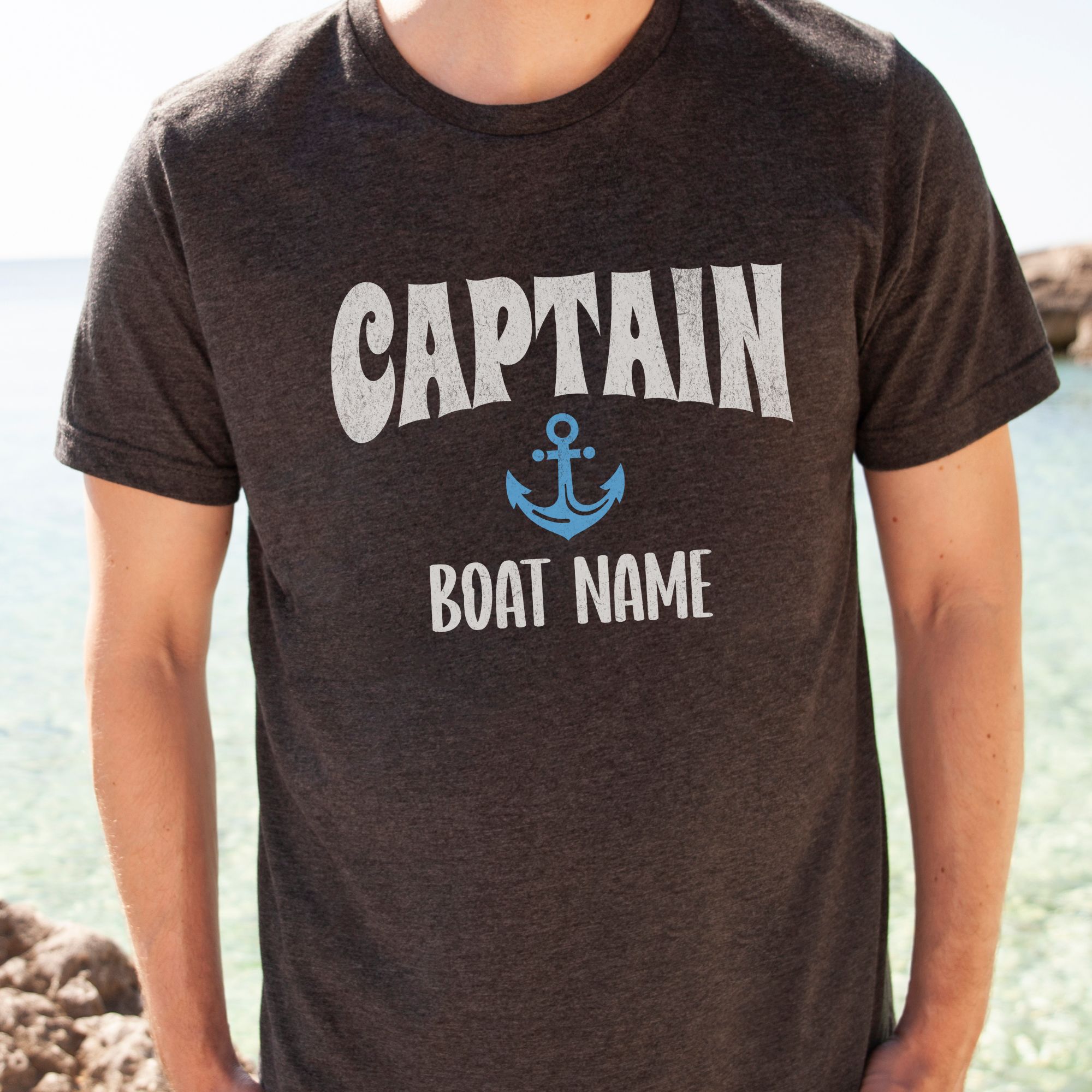
Captain Anchor Custom Boat Name Shirt
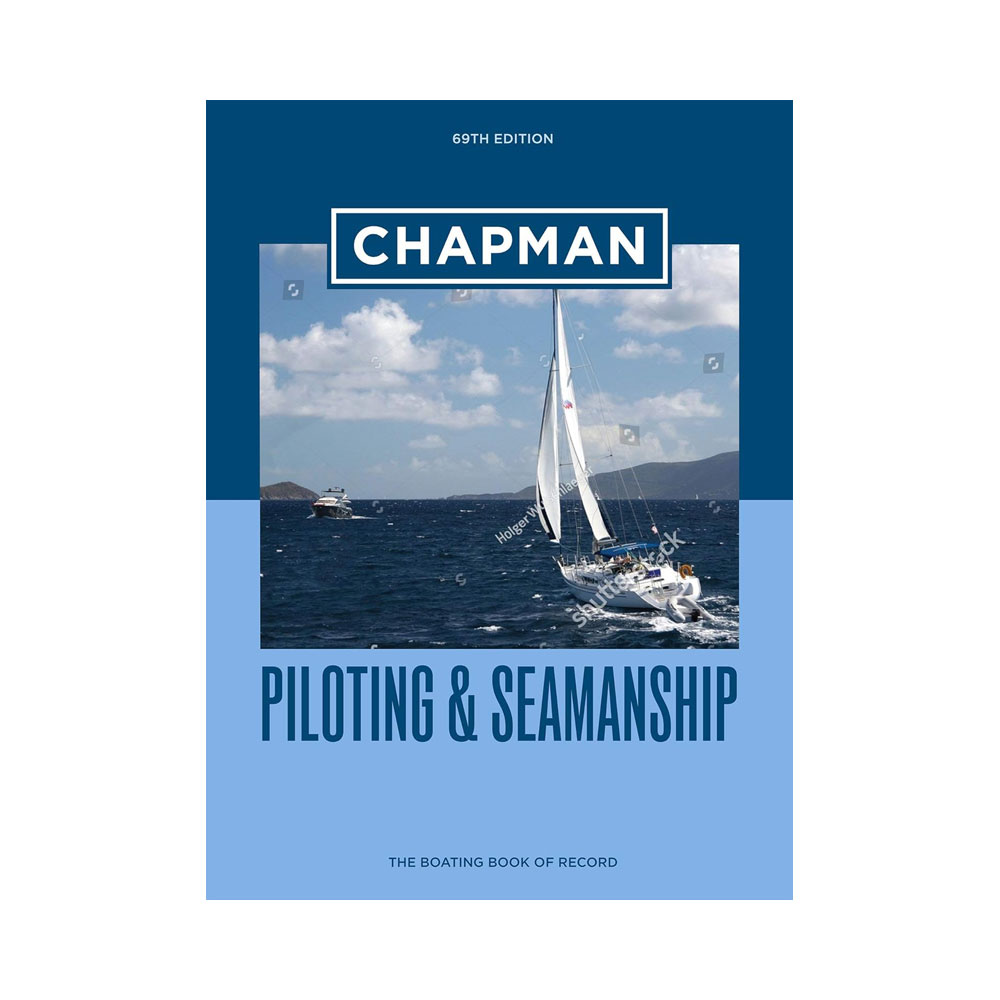
Chapman Piloting & Seamanship 69th Edition
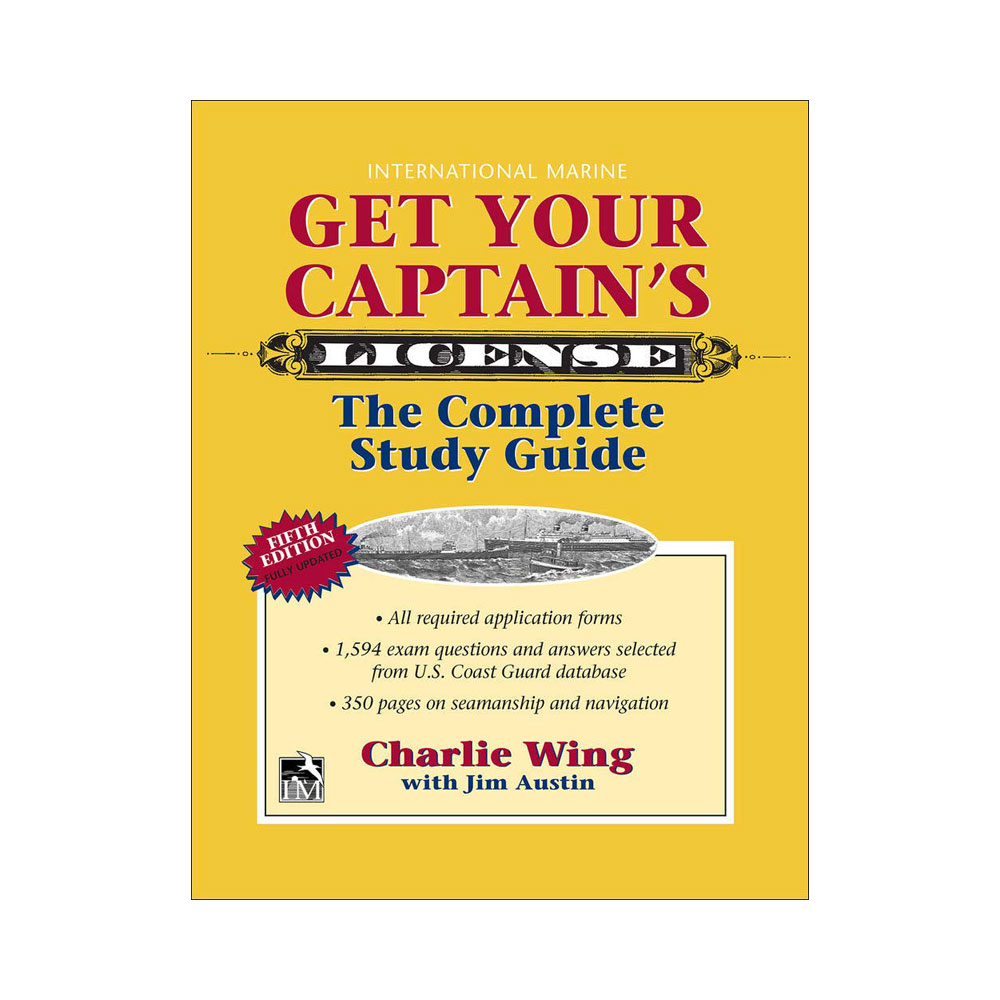
Get Your Captain’s License Study Guide
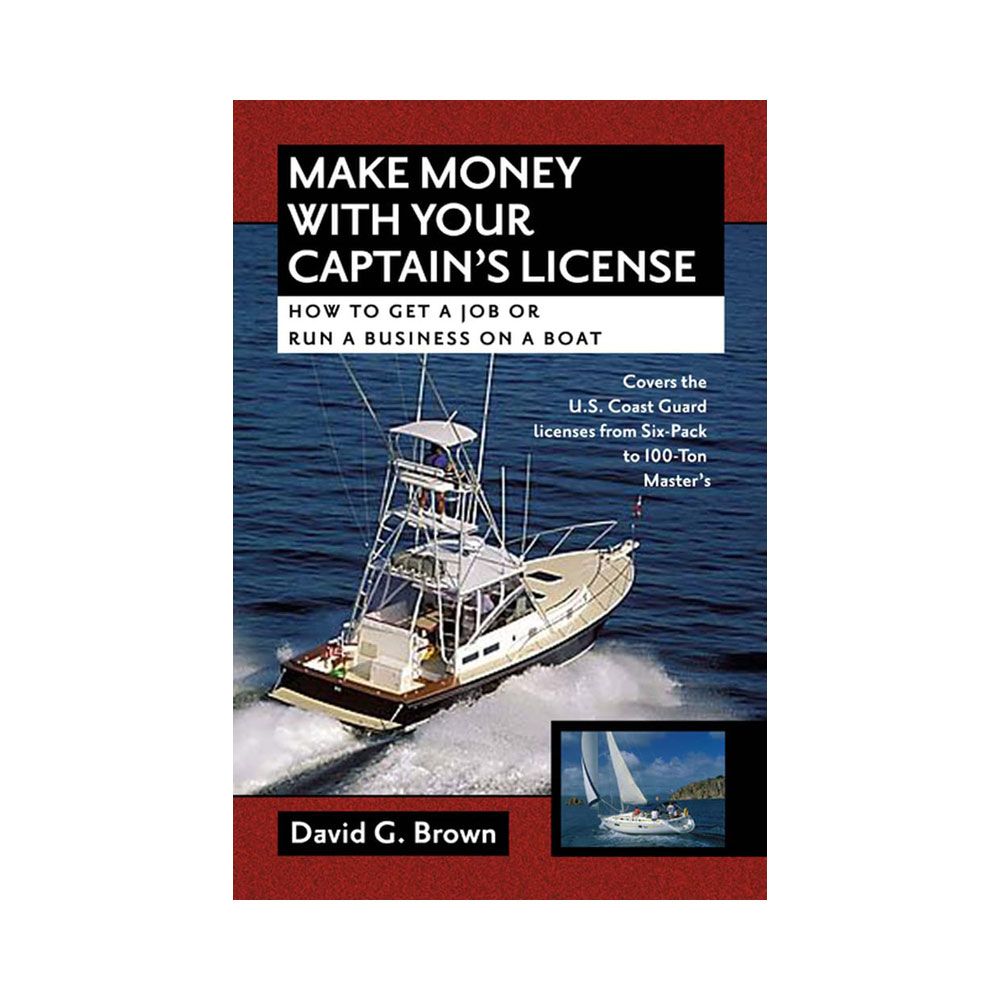
Make Money With Your Captain’s License Book
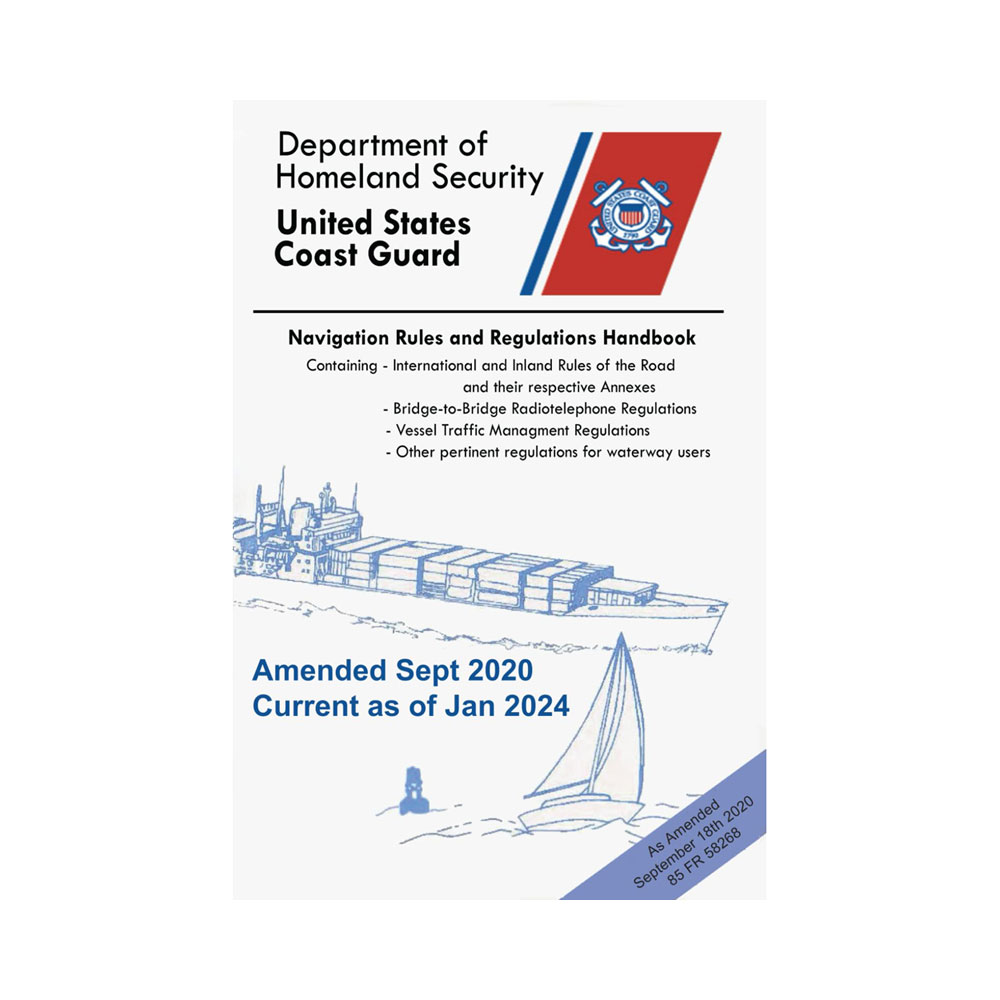
USCG Navigation Rules And Regulations Handbook
Trending now: father's day gifts for boat dads.
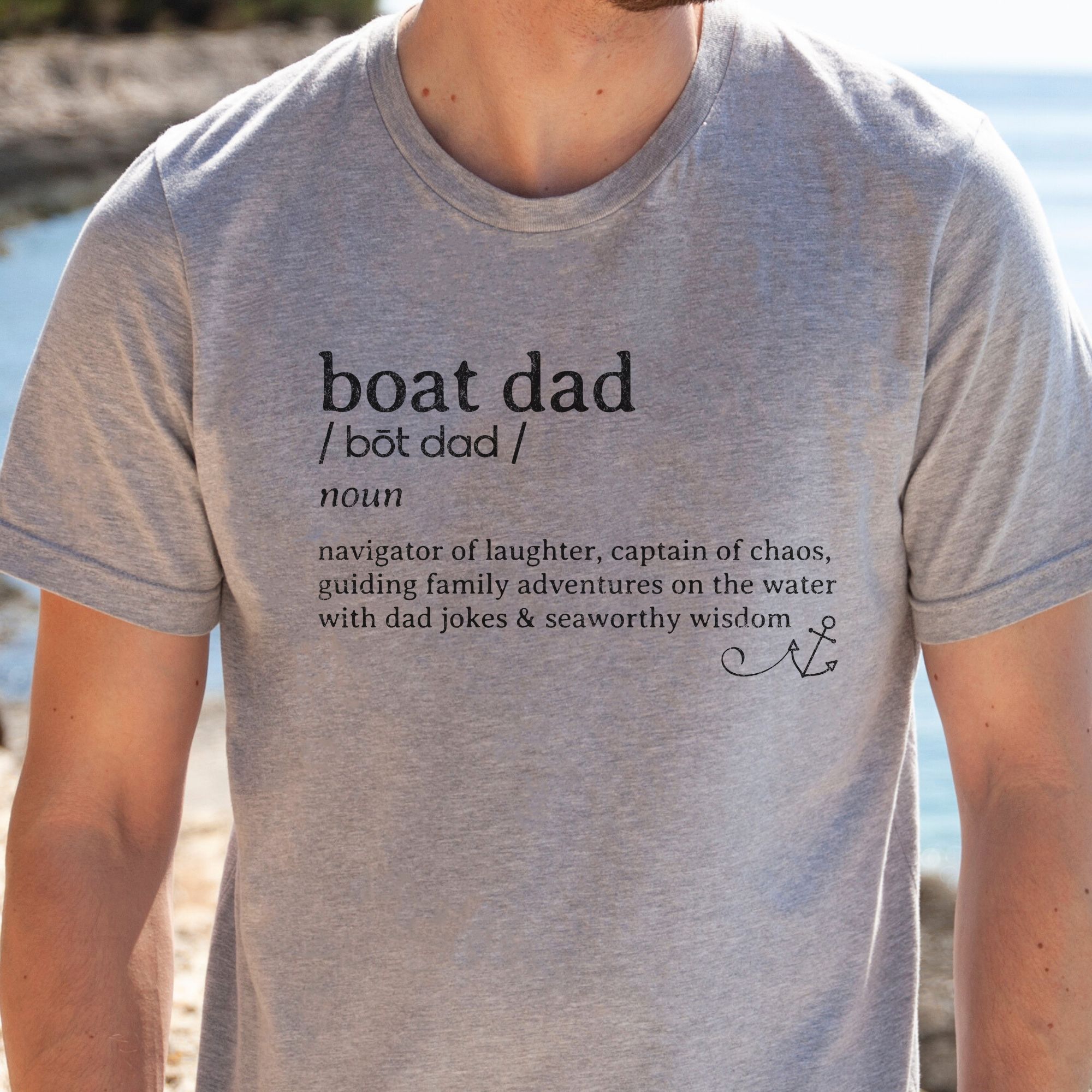
Boat Dad Definition T-Shirt
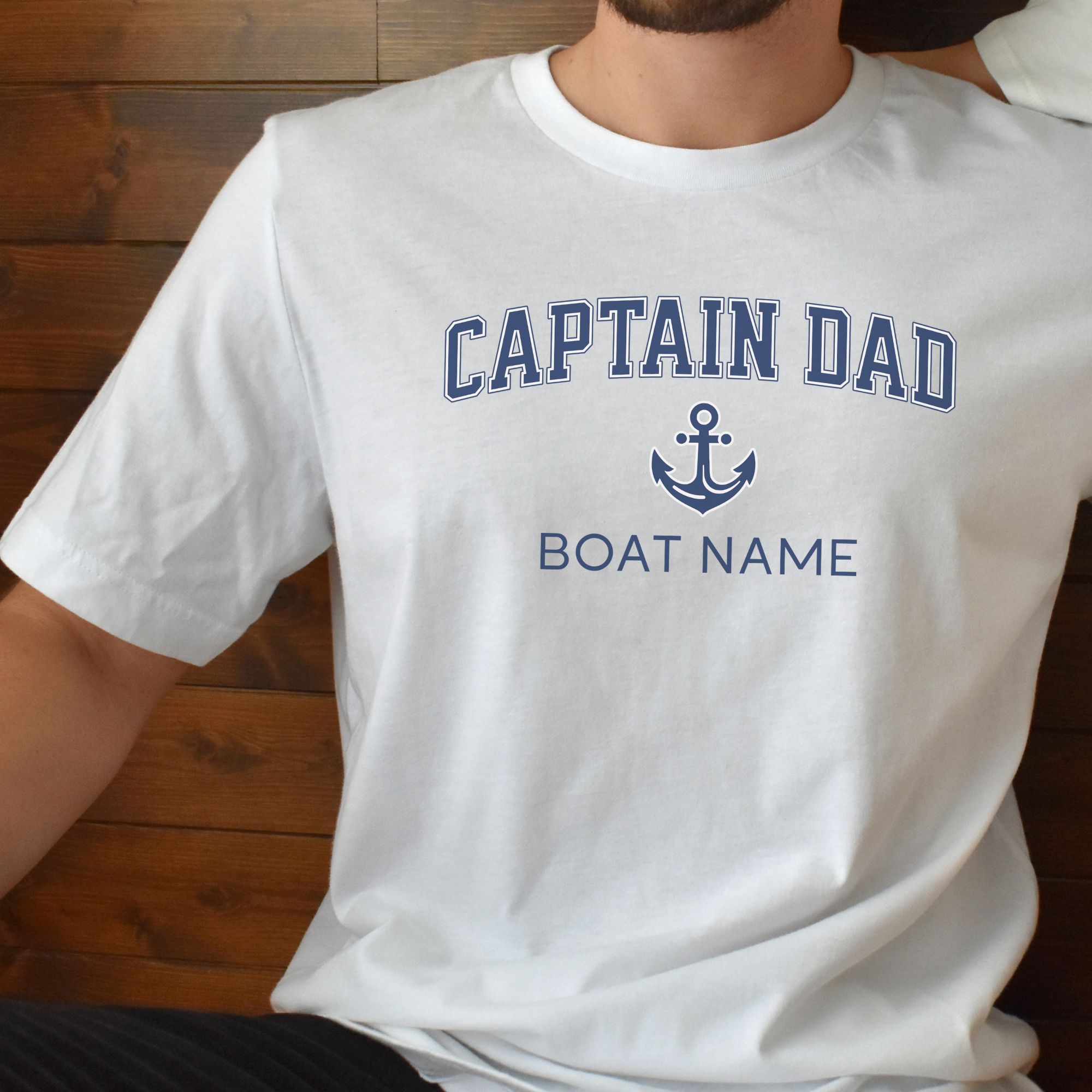
Captain Dad Custom Boat Name Shirt
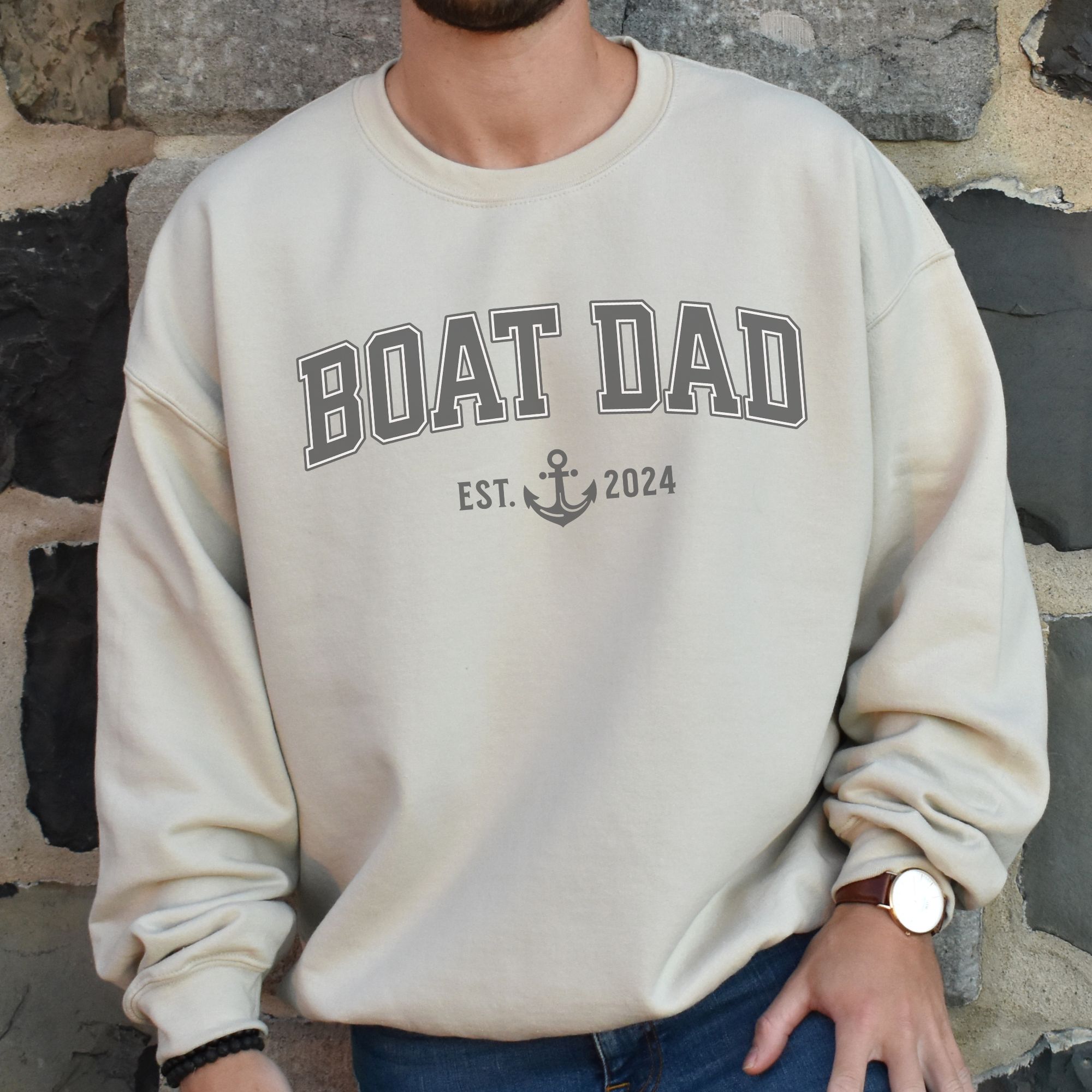
Custom Boat Dad Sweatshirt

Capt. Rob Chichester
Related posts.
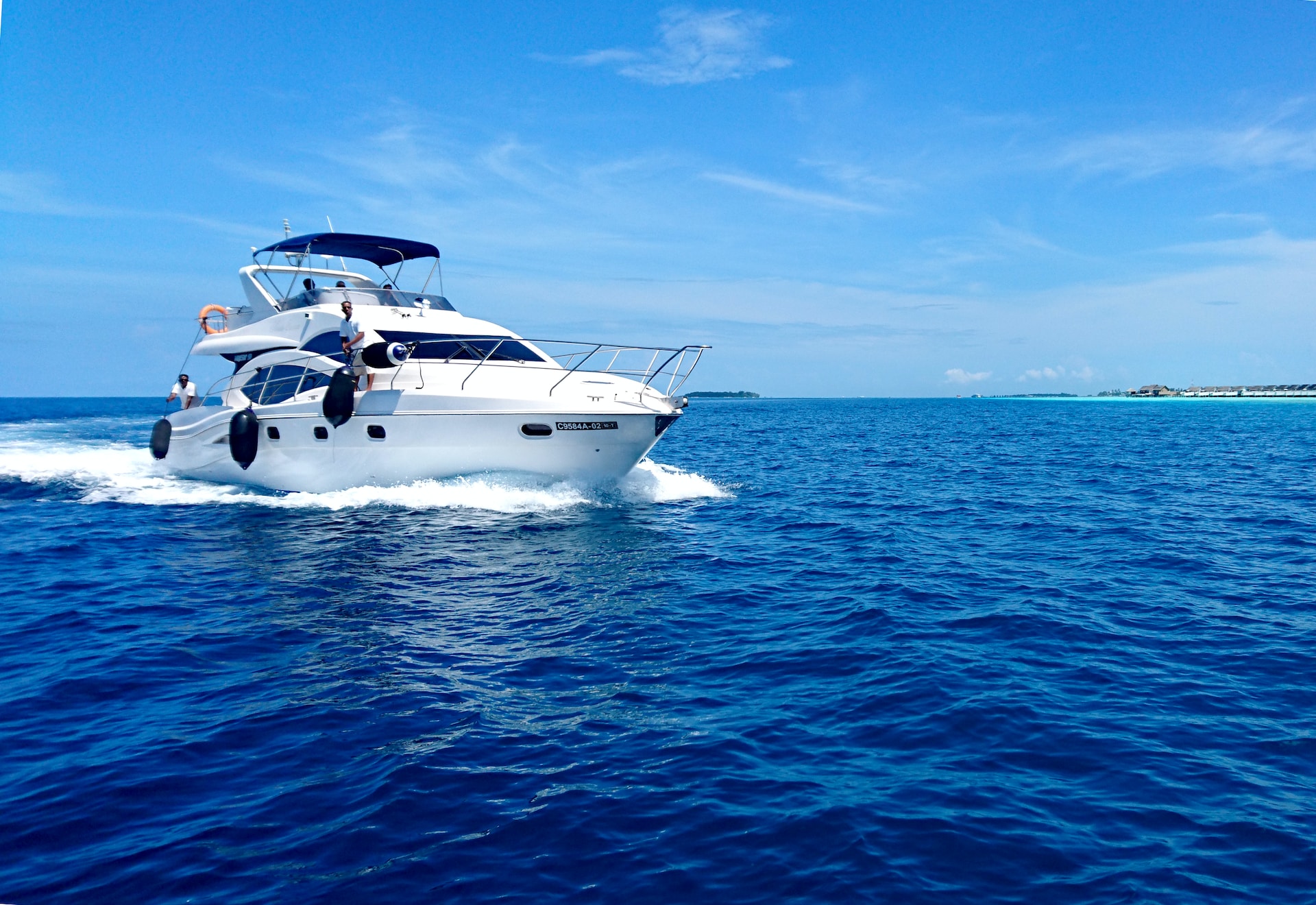
Can I Drive My Yacht Anywhere In The World?
May 11, 2023
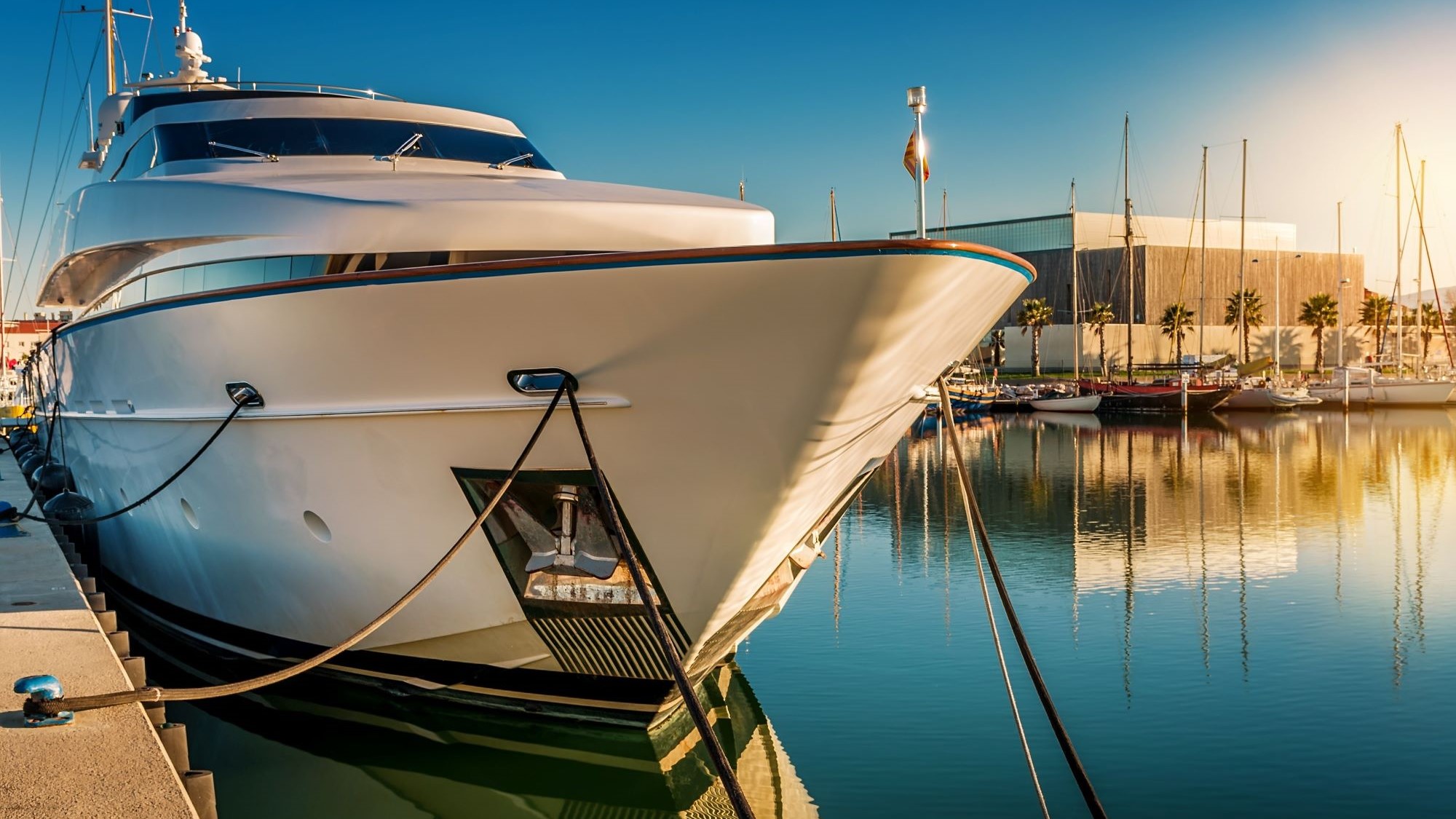
How To Transport A Yacht Safely
April 7, 2023
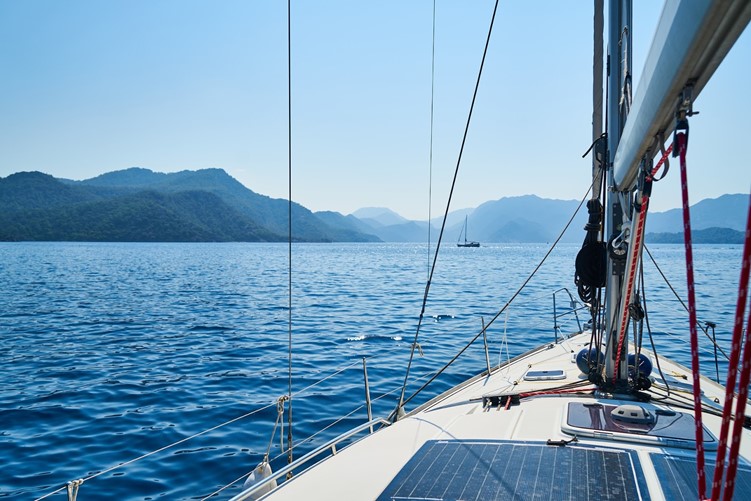
How Hiring a Captain Can Make You a Better Boater
May 29, 2021
24 Comments
Hi, I am hoping you can help me out. I am a USCG vet that was stationed at a small boat station in NJ from 1983-1989. I am trying to get my sea time documented but I am having a very hard time finding out how to do that since the station records were not computerized at that time. I have contacted the NMC and they told me to call the station to get an Abstract of Operations report. They just laughed at me when I called the station. I have requested info from vetrecs.archives.gov but I am sure that will take some time just to get an answer as to wether they can do that or not. I was wondering if you knew how to go about getting the information that I need. I am sure I am not the only person with this issue and I can’t seem to find anyone that knows exactly how to go about documenting that time.
Thanks Jeff

Thanks for your question. I don’t have a lot of advice for you regarding USCG internal procedures. Perhaps you can contact the Office of Personnel and try to get a copy of your service record. Alternatively, is there anyone at that small boat station who knew you? Would the OIC be willing to write a letter? The last and least likely option would be to fill out your own sea service form and see if anyone there would sign off on it for you. Now the regulations speak of a Certificate of Discharge being acceptable. See for example 46 CFR 10.232 ( https://www.law.cornell.edu/cfr/text/46/10.232 ). If you already have that, you might be good to go!
So…start with your Certificate of Discharge and if you don’t have that, then contact the Office of Personnel to see if you can get the requisite documents. Let me know how you make out!
Hi Captain Rob, My name is Elton the 66 year old owner of a small 35 ft. Kingscraft houseboat. I spend a lot of time on one large lake. It is an older wonderful all aluminum vessel but weighs only about 8000 lbs. In the chart the lowest weight rating is 17 tons. I would love to educate myself and become a Captain. Is that possible at some level? I would also have to document my own time as pilot.
Sir, you have open to you both options that I describe in my article. You could pursue either a Master’s license OR an Operator of an Uninspected Vessels license. From what you have written, I see no inherent obstacles. You must be able to document your seatime, get a medical evaluation, and pass the 4 or the 3 parts of the written exam depending on which license you choose to pursue. In any event, you would qualify for an Inland license. Your tonnage rating would also depend on which license you pursue. Solely based on what you have said above, you would qualify for a 50 ton Master’s license. If you pursue an OUPV, that comes with a tonnage rating of 100 tons. For most people, the biggest challenge is acceptably documenting seatime. (It needs all be as captain. You can include time served as master, mate, or crew but NOT as a paying passenger.) If your concern is your age, I know a few captain’s in the 60s and 70s. I am one of the former myself. Good luck!
Capt.Rob I am US Army Veteran And I was wondering if their was a school i could attend to obtain a licence, I ask this because i have to decide what i want to go to school for and this job would be a top pick for me. Any help on this matter would be greatly appreciated thanks
There are MANY captain schools that can help you with the written tests but there are NO schools that can help you with the sea time requirements unless you are considering enrolling in a maritime college like Kings Point or Fort Schuyler in the New York State university system. I used Mariners Learning System for my written tests only because it was more convenient than going to the USCG REC to take the exams.
Where would I get sea service forms . I have owned and operated my own boats for over 30 years and am now being asked to get a captains liscence
There is a link in the article for the National Maritime Center. All the forms you needs can be found on their website. Alternatively, you can search for USCG National Maritime Center with your favorite search engine.
Couple questions. Would working as a divemaster on a dive boat in the Gulf of Mexico count for near coastal sea time? And if you were to have 8 hours of sea time in one day, could you potentially count that as two days at sea? Or would it still be just one day? Thanks for all the info this has been a huge help!
Any time spent aboard a vessel underway counts as long as the owner, manager, or master of the vessel will attest to that. When submitting Sea Service forms, your option for your role aboard the vessel are things like crew, mate, master, engineer, etc. You will need to determine what your position was. Divemaster is not recognized and does not speak to maritime skills necessarily. (For example, you can dive from shore never having been in a boat.) Regarding the near coastal time, you just need to verify that the vessel upon which you served was indeed in near-coastal or ocean waters. The form has spaces for days spent within the specified boundaries and outside those boundaries. I once saw an interactive chart online for finding the boundary lines in a given area. For your purposes, you cannot count 8 hours as two days underway. You need a MINIMUM of 4 hours underway to count that day. Being at anchor or otherwise moored or secured does not count. Good luck!
Capt. Lots of good and helpful info. I boated the Chesapeake for 10+yrs, from the Delaware bay to Virginia in a 27′ cruiser. i’ve not been on the water since 2012. So to be clear, I need to acquire some time on a charter vessel to even attempt the basic “6-pack”. I have my CG boating skills and seamanship certificates,and will work on the CG719S. Living in Florida, lots of opportunity, should have done this sooner !! Thanks
Thank you for your feedback. I am glad you found the article helpful. Apart from documenting your sea time, I found the most labor intensive aspect was verifying that a) I had all the documents that I needed and b) I had correctly completely all of the USCG forms. A lesser challenge may be in determining what correct application fees are. If you are not sure, contact USCG NMC by phone, email, or online chat to get clarification on what fees you have to pay. Good luck!
This is great info..
I am starting out (hopefully) as a plan is due to new lifestyle i desire to get an two oceans open ocean 800 expedition catamaran (again very expensive so fingers crossed) but the plan is while the vessel is being built, i can take several classes and get a few certifications prior to launch, then as life you see everywhere on youtube for example have the vessel at dock, then day trips, then a week trip and just push it a little further until you are ready for the maiden voyage, really looking to live off anchorage in around the philippines / guam area mostly philippines or south pacific area, mostly friends and family but my question is any licence for that type of boat, and also if you have heard of any schools in the philippines? I know they have a few courses that are completely certified like any american school but a fraction of the cost, just curious if any particular licence i need to get or have?
You did not say whether you intended to take passengers for hire. Generally, one only needs to be licensed if you are getting paid to carry passengers OR if you working in more advanced maritime fields like tug boats and large cargo vessels. If you are only operating your private vessel for your own personal or recreational purposes, you usually do not need any kind of license other than possibly taking a multiple choice test on local safety rules and rules of the road. I am not familiar with the licensing requirements in foreign venues like the Philippines. Each nation has its own requirements. I was able to find information at this link: http://www.marina.gov.ph/policies/MCs/mc170.pdf . You may find some useful information in that document.
Good luck! And safe sailing…
Your information was helpful, thank you. I have decided to pursue getting my License but I am starting from scratch. Should I take classes before looking to get sea time? And how does one go about getting sea time with no experience?
Any course work you take will typically culminate in a certificate of completion. However that certificate will only be valid for 1 year. Therefore, do NOT take any exams more than about 6 months prior to submitting your original license application. As for sea time, you can look for marine work that does not require a license like deck crew on water taxis or excursion boats. Time spent on a friend’s boat counts. Have that friend complete and sign a sea service form. Sea time never expires and can be counted from the age of 15. Learn your rules of the road and learn to feel your vessel. Driving a boat is a lot different from driving a car. As a licensed captain, you are expected to step up to the helm and handle the ship with relatively little training time. Good luck!
Great article, thanks for writing it! Does time spent aboard a recreational boat that I own, when I am the only person aboard, count towards sea time? If so how do I document that – there’s no one to sign for the time. Thanks again.
Time spent on your own boat absolutely counts. You would sign the CG-719S Sea Service form yourself where it says Applicant AND where it says Person Attesting to Experience. However, you will have to provide proof of ownership for the vessel. The Bill of Sale is usually what is used but the vessel’s CG document or state registration card should also be sufficient. Remember that seatime is counted only from the age of 15 and it is underway time of at least 4 hours per day. Time on the anchor or alongside do NOT count. The presence of others is irrelevant.
Hi Shane. Sea time is defined as time working aboard in any capacity relevant to the rating you are pursuing. For instance, if you are a bos’n or deck crew, that time it unlikely to count towards a engineer’s license and conversely, time in the engine department or work on mechanical systems would be difficult to apply towards a deck officer’s license. The highest rating one can get on an original (i.e., first) license is 100 Ton Master. It is likely that your Navy time would count; however, your challenge is getting an appropriate service letter from the Navy. You cannot submit a CG-719S for your Navy service as that form is for SMALL VESSEL service. Consult the USCG site at http://www.uscg.mil/nmc for more information. Also note that you may use any valid sea time accrued from the age of 15. Good luck!
Hi Capt. Rob, I have one question rather just some clarification regarding the time at sea, for the tonnage rating. Does “time at sea” mean just that or does it mean operating the vessel. I was in the Navy for several years as an operations specialist and I am not sure what level I would qualify for if I were to pursue getting a Captains license. Also I was wondering how much the entire process would cost.
Hey Rob, Thanks so much for taking the time to write this, it was really very useful to read. This has been on my mind for some considerable time, but I am now finally starting on the road to getting my licence and taking a nautical shift in my career. I have been a sailor all my life, was sailing single handed as soon as I could walk and now own a 38 foot Irwin racer/crusier.
My one big question is online study vs going somewhere to do the required course? I wonder how you gained your licence and what you might recommend?
My issue was primarily NOT wanting to have to take the tests at the NYC REC and to NOT attend intense 8-10 hour weekend classes. I was comfortable with the Rules of the Road and chart navigation issues as well the Deck General material. Since I got a Master’s license (versus the OUPV), there was more legal stuff to know in the category they call Ship’s Business. I did an online course through Mariner’s School in Princeton, NJ. The price was good and the location was convenient for when I did go to take the test.
The bottom line is do what works best for you given what you need to learn or refresh, how much time you have to do it, and where you will need to go to take the final tests.
(Please note that you can submit your application and/or take your tests at ANY REC anywhere. It is not a function of where you live or where you will sail.)
Great article Rob. Thanks for sharing your experience
Thank you for the feedback. Do please let me know if you have any further questions or if I may be of service in some other regard!
Comments are closed.
- Skip to primary navigation
- Skip to main content
- Skip to footer

(866) 300-5984 [email protected]
What are the Requirements for Earning a Captain’s License ?
U.s. coast guard requirements for national oupv or master up to 100 tons.
A Captain’s License is required to operate a commercial vessel or to take paying passengers out on your vessel. Understanding the Captain’s License Requirements is important prior to taking a captain’s license course . The prerequisites should be reviewed before applying for any U.S. Coast Guard credential. This is advised so you don’t spend your time and money pursuing a license that you don’t qualify for. For helpful credential information and application packets, and official forms click here . For Maritime Institute’s fee-based credential services, click here to get more info.
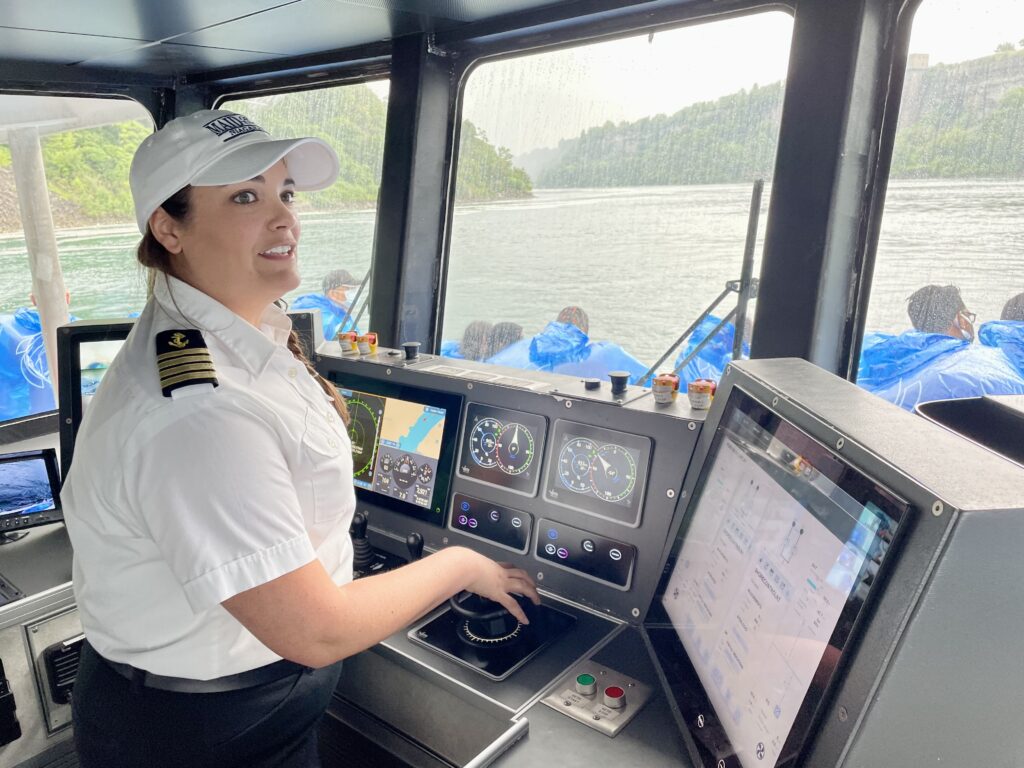
Prerequisites for Operator of Uninspected Passenger Vessels (OUPV/”6-Pack”)
The National OUPV license is limited to uninspected vessels, of less than 100 gross tons, operating on U.S. domestic waters ONLY. Also limited to carrying six or less paying passengers. You must meet all of the requirements established by the USCG National Maritime Center in order to apply for this license. The USCG checklist of requirements is located here on the National Maritime Center website: https://www.dco.uscg.mil/nmc/checklist/ . Under National Officer Endorsements for Deck, click on National OUPV Less Than 100 GRT.
Important sea service requirements for OUPV:
- Must be at least 18 years old.
- Must be able to document 360 days of experience on a vessel, of which at least 90 days must be on Near Coastal/Ocean waters otherwise license will be limited to Inland Waters ONLY. ( See: What Counts as Sea Service )
- 90 days of sea service must be within the last 3 years of when you apply.
- 90 days of sea service must be on Ocean or Near Coastal waters or otherwise the license will be limited to Inland Waters only.
- If you are not a U.S. Citizen, you can apply for this license but it will be limited tonnage and restricted to undocumented vessels.
Prerequisites for Master up to 100 Tons on Inland Waters/Great Lakes
With a Master license you may operate inspected/commercial vessels and also take more than six paying passengers. You must meet all of the requirements established by the USCG National Maritime Center in order to apply for this license. The USCG checklist of requirements is located here on the National Maritime Center website: https://www.dco.uscg.mil/nmc/checklist/ . Under National Officer Endorsements for Deck, click on National Master 100 GL and Inland.
Important sea service requirements for Master Inland/GL:
- Must be at least 19 years old.
- Must be able to document 360 days of experience on a vessel. ( See: What Counts as Sea Service )
- The tonnage of the license (25 Ton, 50 Ton, or 100 Ton) that you get, is determined by your experience. See USCG checklist in the paragraph above for the specific tonnage qualifications .
If you plan on operating an inspected sailing vessel, you must have a sailing endorsement along with the Master Inland/GL license. The required amount of sea service for a sailing endorsement on a Master Inland/GL license is: 180 days on sail or auxiliary sail vessels.
Prerequisites for Master up to 100 Tons on Near Coastal Waters
With a Master license you may operate inspected/commercial vessels and also take more than six paying passengers. You must meet all of the requirements established by the USCG National Maritime Center in order to apply for this license. The USCG checklist of requirements is located here on the National Maritime Center website: https://www.dco.uscg.mil/nmc/checklist/ . Under National Officer Endorsements for Deck, click on National Master 100NC .
- Must be able to document 720 days of experience on a vessel, of which at least 360 days must be on Near Coastal/Ocean waters. ( See: What Counts as Sea Service )
If you plan on operating an inspected sailing vessel, you must have a sailing endorsement along with the Master Near Coastal license. The required amount of sea service for a sailing endorsement on a Master NC license is: 360 days on sail or auxiliary sail vessels.
- Cookie Policy
- Privacy Policy
- Terms of Use
Sign Up For Our E-Newsletter!
Maritime Institute Online Course Portal Book Examination - Everett, WA Book Examination - San Diego, CA
Privacy Overview
Log in to maritime institute.

Why Obtaining Your Captain‘s License Is Essential
How to get your captain's license and pilot your own yacht.
If your boat is longer than 9 metres, without a skipper’s or captain’s license, you cannot legally take it out to sea.
That kind of defeats the purpose of owning a boat, right?
Earning a captain’s license and being able to confidently pilot your own yacht will be your passport to traversing our planet’s beautiful oceans. You will have the freedom to explore the seas to your heart’s content without a care in the world.
Getting the right certification for your requirements, be it a Day Skipper , Coastal Skipper , Local Waters Skipper or Yachtmaster Offshore Certificate of Competence , will allow you and your sailing companions to get the most out of your yacht and enjoy it to the maximum.

Become a yacht captain by acquiring your captain's license
If you already have significant sailing experience, you may want to go the self-study route and simply take your exams at an accredited sailing school.
If you are new to the world of sailing, you’ll want to choose a reputable sailing school. They should provide you with the necessary practical and theoretical training to confidently captain your yacht.
Here are the various Certificates of Competency (COCs) or 'Captains Licenses'
- Inland Waters Skipper
If you hold this license, you will be qualified to skipper a sailboat inland during day and night.
- Day Skipper
This skipper’s license will qualify you to captain a sailboat at sea in local waters from sunrise to sunset. Local waters are defined as 15 nautical miles, or 25 miles, from your home port, given that they are no more than 15 nautical miles from an approved safe haven.
- Local Waters Skipper
Holding this license, you will be qualified to skipper a sailboat at sea by day or by night in local waters, as defined for the Day Skipper’s license set out above.
- Coastal Skipper
A Coastal Skipper‘s license will qualify you to skipper a sailboat on any coastal passage, as long as it is within 40 nautical miles of the coast, day or night.
- Yachtmaster Offshore
A Yachtmaster Offshore skipper’s license will qualify you to captain a sailboat on any extended or ocean passage.
- Yachtmaster Ocean
A Yachtmaster Ocean certificate is a badge of honour, indicating that you have mastered celestial navigation.

To sail around the world, you will need a captains license!
You will need your international accreditation through the Royal Yacht Association or International Yacht Training if you wish to skipper a yacht or superyacht as a career.
International Certificate of Competence
If you plan to sail your yacht around the world, you’ll have to obtain an International Certificate of Competence (ICC) . The ICC has been likened to an international driver’s license for boats.
If you have your sights set on the waters of Europe and the Mediterranean, you will need an ICC to do so legally. However, it is essential to note that the US and Canada have different international captain license requirements and do not recognise the International Certificate of Competence.
You will have to contact a Royal Yachting Association affiliate to obtain an ICC in North America.
COCs - start your captain's license from the beginning
The various Certificates of Competence are progressive, so it makes sense to start with your Day Skipper’s license , and progress to your Yacht master Offshore captain’s license from thereon.
An important consideration to keep in mind is that the Certificate of Competence you select will very much depend on your individual needs and circumstances.
For example, the requirements for a Recreational Sailing Certificate of Competence differ from a Commercial Sailing Certificate of Competence . So, your motivation (recreational, commercial or professional international sailing) will determine which skipper training course you select.
There are also some necessary prerequisites that have to be met before any sailor can apply for skipper’s license training. They are:
- All candidates must be at least 16 years of age
- For ocean sailing, candidates need a radio operator’s certificate valid for operating a marine VHF radio in South Africa
- All candidates will have to pass a basic eye test. If you are colour blind, you will not be able to proceed past the Day Skipper Certificate of Competence
- Candidates for the Coastal Skipper Certificate of Competence and above must have a current and valid Level 1 First Aid Certificate
- All candidates will have to produce a logbook of experience to get their qualification. The required expertise to be logged varies depending on the certification course.
Here you will find lots of information on the various sailing Certificates of Competence (or skipper tickets, as they are also known) available to you.
Just keep in mind that such certificates (and what they will legally qualify you for) vary from country to country.
If you are a non-SA citizen, you will have to research your country’s legal requirements for the various sailing Certificates of Competence.
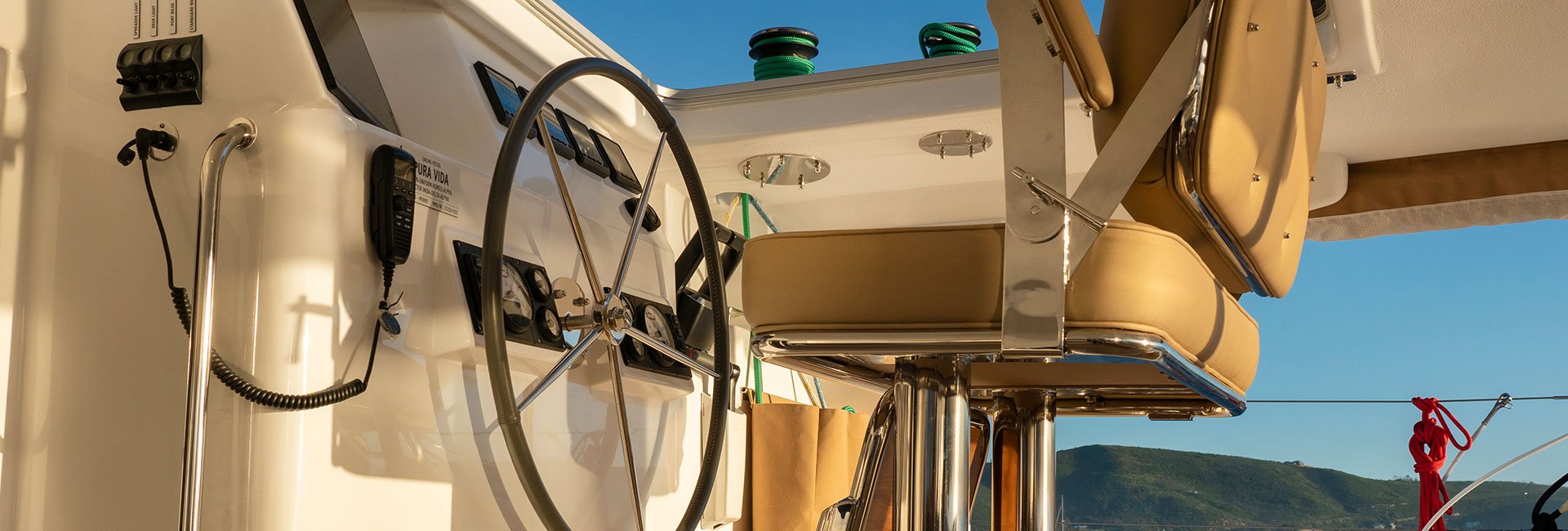
How long does it take to become a yacht captain?
This will depend on the skipper’s course you decide on. To obtain certification in basic sailing skills is quite affordable and could take as little as three weekends to complete.
Courses like the Yachtmaster Ocean Certificate of Competence are much more comprehensive, intensive and costly. This course takes about 17 weeks to complete.
Why getting your skipper’s or captain’s license will be worth every cent
Unless you have a sailing crew (including a qualified skipper) at the ready, it will be absolutely worth your while to obtain the necessary credentials to skipper your yacht yourself.
South Africa has many reputable, accredited sailing schools. They can provide you with all the information and training you need to obtain the captain’s or skipper’s license that is right for your requirements.
Undergoing the necessary practical and theoretical training will give you all the knowledge and experience to sail your boat with confidence.
What’s more, your skipper’s license training is likely to be an exhilarating adventure in itself.
It is also an excellent way to meet other sailing enthusiasts who might just become friends for life.

Yacht Maintenance - Top Tips for Protecting Your Investment
Essential things to know about boat insurance, top things to know about yacht solar power, building a yacht: top things to know about the yacht-building process, get all the latest to your inbox, discovery awaits.


- Home /
- Blog /
- Captain License
- / USCG Captain’s License: Ultimate Guide
USCG Captain’s License: Ultimate Guide
When do you need a captain’s license.
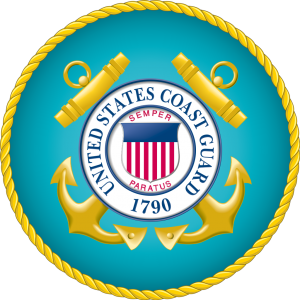
Sometimes, maritime training instructors also need a captain’s license. Another reason you might need a captain’s license is for insurance purposes. Some insurance companies require that the boat has a licensed captain onboard, while others offer discounted rates.
To carry up to six paying passengers on a vessel of up to 100 gross tons you need an Operator of Uninspected Passenger Vessels (OUPV) Captain License – also called a six-pack captain’s license. The 6-pack captain’s license requirements include that you are at least 18 years old. You do not have to be a U.S. citizen, but you have to provide proof of permanent U.S. residency.
If you are intending to carry more than six paying passengers you need a Master Captain’s License – the highest level captain’s license issued by the USCG. The master captain’s license requirements include that you are at least 19 years old and a U.S. citizen.
How to become a boat captain
1. captains license sea time requirements.
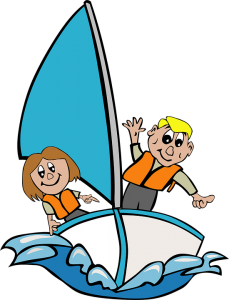
Sea service time can be counted from your 16 th birthday. It must be documented on the Small Vessel Sea Service Form , or detailed in a letter, and signed off by the owner/operator/master of the vessel on which you conducted the service. If you did your sea service on more than one vessel, a separate form must be used for each vessel. If you are the owner of the vessel you must present proof of ownership.
Eight hours underway (not moored or anchored) in a 24-hour period counts as one day of sea service on vessels over 100 gross tons. For vessels less than 100 gross tons, no less than four hours underway counts as a day. It is important to identify the waters (inland, great lakes or near coastal) that the vessel was operating on as this will determine the type of captain’s license you qualify for.
USCG captain’s licenses are issued to operate vessels either inland, on great lakes or near coastal. To become a boat captain on great lakes you need at least 90 days sea service time on great lakes. The sea service requirements for operating a vessel near the coast depends on whether you are applying for an OUPV Captain’s License or a Master Captain’s License .
The gross tons of the vessel is also important to document – especially when applying for a Master Captain’s License . Tonnage refers to the volume of the boat and not the weight. If the tonnage of the boat is unknown (check the vessel’s documentation), the length, width and depth can be filled in on the Small Vessel Sea Service Form in order for the USCG to calculate the tonnage. The registration/identification number of the vessel must also be provided or the USCG will not accept the sea service form.

You will be quizzed on the following sections:
- Rules of the Road (you need to correctly answer 90% of 30 questions)
- Navigation General (you need to correctly answer 70% of 30 questions)
- Chart Navigation (you need to correctly answer 70% of 10 questions)
- Deck General and Safety (you need to correctly answer 70% of 60 questions)
- For a master captain’s license : Master 25/50/100 Ton (you need to correctly answer 70% of 70 questions)
You can find up-to-date captain’s license practice test questions, released directly from the U.S. Coast Guard, at USCGQ.com .
3. Additional requirements
- Pass a physical
- Pass a drug test
- Obtain a CPR and basic first aid card
- Request a criminal background and driving record check by applying for a Transportation Workers Identification Credential (TWIC) card at the Department of Homeland Security.
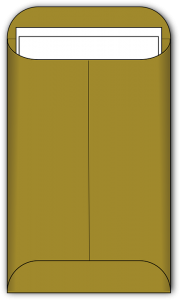
- Merchant Mariner Credential (MMC) Application Form ( CG-719B )
- Copy of Certificate of Training
- Copy of your CPR & First aid card (front and back)
- TWIC application receipt
- Conviction Disclosure Statement (if convicted of anything) ( CG-719C )
- Small Vessel Sea Service Form ( CG-719S )
- Medical Form ( CG-719K )
- DOT/USCG Drug Testing Form ( CG-719P )
- Receipt of payment (you can pay applicable fees at Pay.gov )
You must apply at your USCG regional exam center in person, by mail or electronically. Your application must be accompanied by photo identification.
How much does it cost to get a U.S. Coast Guard captain license?

You need to pay the USCG for the issuance of the Merchant Mariner Credential ($45) and for processing the license application ($100). If you are undertaking the examination at a USCG exam center (and not with an approved course provider) you also need to pay the examination fee ($95).
But it doesn’t end there. You need to pay the TWIC enrollment fee; for the physical exam and drug screening; and for First Aid/CPR Training.
A good tip is to submit your application to the USCG before enrolling in a course. Once the application is approved by the USCG, in terms of the required documentation, you will receive a notification indicating “Approval to Test (ATT)”. That way you can be sure your application will be approved before paying course tuition fees.
Also see USCG captain’s license renewal requirements, upgrade requirements and endorsements .
USCG License Upgrade
USCG License Renewal
USCG Captain’s License Endorsements
Merchant Mariner Credential (MMC)
USCG Master Captain’s License
USCG OUPV (Six-Pack) Captain’s License
Click Here to Leave a Comment Below
Leave a Comment:
Discover Safer Boating, Experienced Captains, Comprehensive Courses With At The Helm Training
We make boating safe, one lesson at a time.
Nationally-Accredited Boating Curriculum & Partners
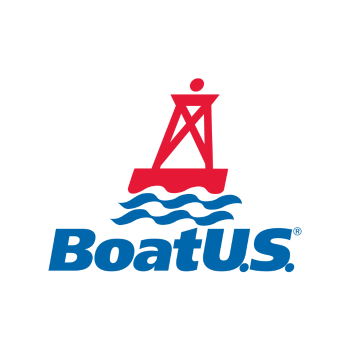
USCG Licensed Captains
At The Helm Training has over 50 licensed Master Captains as part of our team.
Our Services
Exemplary boating training & delivery solutions, 40 years of experience.
Leveraging a wealth of four decades on the water, we combine time-honored maritime wisdom with modern safety practices that sets the foundation for a proven training curriculum.
Nationally Accredited
Our curriculum is accredited by renowned organizations such as the BoatUS, National Safe Boating Council (NSBC), and the National Association of State Boating Law Administrators (NASBLA).
Hands-On Training
We believe the best way to learn boat safety is on the water - whether in your boat or ours, where we give you the practical skills needed for safe, confident navigation.
Boat Delivery & Relocation
Utilize our expert delivery service from anywhere across the U.S., Bahamas, or Caribbean , ensuring your vessel arrives securely to its destination.

Owner/Operator Training
Receive professional, hands-on training with our f ully-immersive course to operate your vessel safely and confidently.

On-Water Boat Handling Course
Receive professional, hands-on training - whether on your boat or ours - to operate your boat safely and confidently. This course is ideal for boats 18-40ft.
.png)
USCG Captains' License
Become a Licensed Captain with a simple, effective eLearning System backed by Mariners Learning System. No in-person testing with the Coast Guard is required! Just choose the course that interests you, and take the exam to earn your license online on your own time.

Why Choose At The Helm Training?
When you choose At The Helm Training, you're choosing a training program that's been tested, vetted, and deemed among the best in the country. You'll not only gain the skills needed to confidently navigate the water, but you'll also be grounded in the best practices that these leading institutions advocate for.
We bring together theoretical knowledge, practical skills, safety protocols, and real-world experience into a single, powerful training package that empowers you to operate your boat with confidence and skill.
Client Testimonials
What our customers are saying.
Stay Connected
Join our community.
Follow us on Instagram, Facebook, TikTok, YouTube, and LinkedIn!

For marketing and partnership inquiries: [email protected]
View this profile on Instagram At The Helm | Boat Training & Delivery (@ atthehelmtraining ) • Instagram photos and videos
Get In Touch
Ready to make waves.
Our expert team of USCG-licensed captains are ready to help you chart your course. Connect with us today!


U.S. Coast Guard Approved
Maritime training school, "we hold your hand till' it holds a license", in-person classroom.
Come to one of our many locations to get certified
Online Courses
Get certified at your own pace with our online system
Distance Learning
Want to be at home but still have instructor help? Try a distance learning course
Latest news
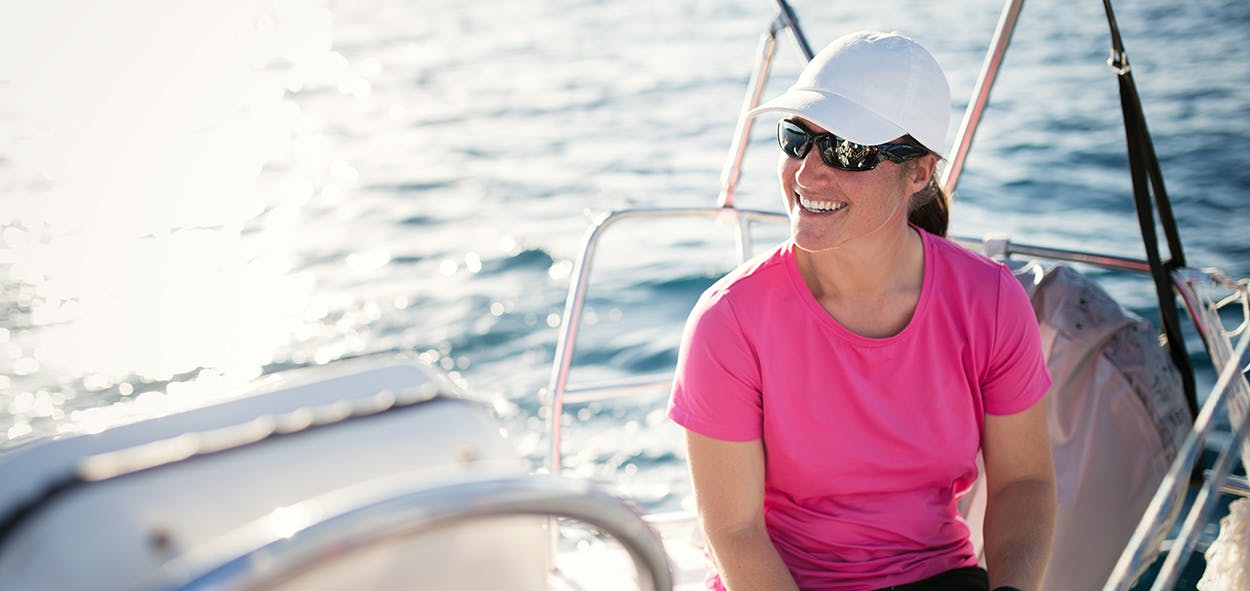
“She School” designed for Women by Women
Coast Guard has approved this newly designed course for women. If you would like to know more details, please get in contact with your nearest SeaSchool location.
We have been in business for over 42 years with convenient locations along the Eastern Seaboard, Gulf Coast and the Caribbean.
Get in touch, write to us, our courses.
Able Seaman
Active Shooter Response Training
Advanced Firefighting Revalidation
Apprentice Mate Steersman
Apprentice Mate Steersman – 2 Day Upgrade
Assist Towing
Assist Towing – Distance Learning
Assist Towing – Online
Auxiliary Sail
Auxiliary Sail – Distance Learning
Auxiliary Sail – Online
Basic & Advanced Firefighting Combination
Basic Firefighting
Bridge Resource Management
Flash Light Tutoring
Inland to Western River Routes for Towing Vessels
Launch Tender – Distance Learning
Launch Tender – Limited Master
Leadership and Managerial Skills
License Renewal (No More Than 200 GRT)
License Renewal (No More Than 200 GRT) – Online
CPR and First Aid
Captain’s License – OUPV
Captain’s License – Online (OUPV)
Crisis Management and Human Behavior
Crowd Management
OUPV – Captain’s License – Distance Learning
PSC – Proficiency In Survival Craft
PSC – Proficiency In Survival Craft – Refresher
QMED – Oiler
Radar Inland
Radar Observer Endorsement
Radar Observer Recertification
Ratings Forming Part of a Navigation Watch (RFPNW)
Rules of the Road
STCW Basic Training
STCW Basic Training – Renewal
STCW Basic Training – Revalidation
Son of a Seacook – Cooking School
Tankerman Barge – PIC
Maritime Security Awareness
Maritime Security Awareness With Security Duties
Master / Mate 25-100 GRT
Master / Mate 25-100 GRT – Distance Learning
Master / Mate Upgrade 200 GRT / 500 GT
Visual Communication Flashing Light
Western to Inland Rivers Routes for Towing Vessels

- Mariners Learning System - User Guide
- Online Learning
- Online Testing
- Captain's Licenses
- FCC Licenses
- Student Account (Course Locker)
- Other Helpful Articles
- Course Locker Login
- General Questions
- General Requirements
- OUPV/Six-Pack
- 25/50 or 100 Ton Masters
- OUPV/Six-Pack Upgrade to 25/50 or 100 Ton Masters
- Assistance Towing Endorsement
- Auxiliary Sailing Endorsement
- Deck License Renewal
- Captain's Licenses - Application
- Overview on FCC Licenses
- Types of FCC Licenses
- FCC Licenses - Application
- Contact Information
- Help Center
- Captain's Licenses - General
USCG Captain's License Requirements: MMC Eligibility
Navigating the requirements: becoming a certified captain in the maritime industry.
Obtaining a USCG Captain's License, also known as a Merchant Mariner Credential (MMC), is required for individuals aspiring to become licensed captains in the maritime industry. However, candidates must meet specific eligibility requirements for a USCG Captain's License. This article serves as a comprehensive guide, outlining the various criteria and qualifications necessary to obtain a USCG Captain's License.
Age Requirements
Applicants must meet the U.S. Coast Guard (USCG) minimum age requirements to be eligible for a USCG Captain's license. Generally, the minimum age is 18 years for an OUPV (Operator of Uninspected Passenger Vessels) License and 19 years for higher-level licenses, such as the Master or Mate License. Verifying the specific age requirements for the license category you are pursuing is important.
Sea Service Experience
Sea service experience is vital for obtaining a USCG Captain's License. Applicants must accumulate a specific number of days at sea, which varies depending on the license category and desired tonnage. The USCG typically requires at least 360 days of documented sea service experience for the OUPV License and higher experience levels for more advanced licenses.
Training and Courses
Completing the necessary training and courses is essential for qualifying for a USCG Captain's License. Successful applicants must complete required courses, such as navigation, safety, firefighting, and first aid training. These courses equip the candidates with the necessary knowledge and skills to operate vessels safely and efficiently. Coast Guard-approved courses that meet these requirements are available through Mariners Learning System.
Medical and Physical Fitness Standards
Applicants must meet medical and physical fitness standards to obtain a USCG Captain's License. The USCG requires individuals to undergo a thorough medical examination by a designated medical practitioner. The examination assesses the applicant's physical and mental fitness, ensuring they can perform the duties of a licensed captain.
Meeting the eligibility requirements is essential for obtaining a USCG Captain's License and pursuing a successful career in the maritime industry. By familiarizing yourself with the age requirements, sea service experience, training, medical and physical fitness standards, and character requirements, you can ensure you meet the qualifications necessary to apply for a USCG Captain's License. Complying with these requirements shows your commitment to professionalism and safety, setting the foundation for a rewarding and fulfilling career as a licensed boat captain.
CHECK OUT OUR VIDEO LIBRARY ON CAPTAIN'S LICENSE REQUIREMENTS

Boat Captain's License Guide | How to Get a Captain's License Every Question Answered
Captain's license.
Below is all the information you need to know about how to obtain your United States Coast Guard Operator of Uninspected and/or Inspected Passenger Vessels License OUPV/Six-Pack Captain’s License or 25/50 or 100 Ton Master Captain’s License . The Foolproof Guide to Captain’s License will take you through the steps like; Types of Licenses, Endorsements, Steps to Become a Captain, Application & Qualification Requirements, Sea Time, and much more. Affiliate and helpful links are included on this webpage. This is the best information on the internet for Boat Captain’s License Guide | How to Get a Captain’s License.
The yacht charter market is anticipated to grow about 4% during the forecast period (2020 – 2025).
Types of USCG Captain's Licenses
Steps to become a captain, application & qualification requirements, how to renew your captain’s license, why mariners learning system.
This post may contain affiliate links or mention our own products, please check out our disclosure policy here .
OUPV/Six-pack Captain’s License or Masters Captain’s License – What type of Captain’s License is right for you?
OUPV/Six-pack Captain's License or Masters Captain's License - What type of Captain's License is right for you?
Oupv/six-pack captain's license.
Most recreational boaters looking to get a license to have six or less people on their boat (Charter Boat Captain, SCUBA Dive Boat Captain, etc.) choose to get the Operator of Uninspected Passenger Vessels credential, OUPV/Six-Pack Captain’s license . Uninspected means the Coast Guard doesn’t have to inspect the vessel before you can operate it, and the boat’s design and safety specifications aren’t as strict. This license is not required for recreational boaters, but if you want to make money having paying customers (up to six people) you need to have an OUPV/Six-Pack Captain’s license.
Masters Captain's License
You can also go for your Master Captain’s license and you can achieve this license without first holding an OUPV/Six-Pack license or if you have an OUPV/Six-Pack license, you can upgrade to the Master Captain’s license .
The Master Captain’s license comes with different tonnage designations. If you worked on a boat that was 25 to 50 tons, you can rate for the 25/50 Ton Master Captain’s license, or if you worked on a larger ship, you could rate for the 100 Ton Master Captain’s license, like I did.
The USCG Master license is the highest level license that you can acquire coming into the licensing process. There is a 200 Ton Master license, but you must first have the 100-ton designation prior to obtaining the 200 Ton Master license. The 100-ton Master license allows you to operate inspected vessels (7 passengers or more – and become a (Water Taxi Captain, Ferry Boat Captain, Tour Boat Captain, Larger SCUBA Boat Captain, etc.) or uninspected vessels.
The USCG does not require that you get a Six-Pack license before you get your Master’s, so if you qualify, you can skip the Six-Pack and go straight to your Masters!
A Master license can also be issued for operation on the Great Lakes, Inland, and Near Coastal waterways. This license is issued in 3 versions – 25; 50; or 100 Ton license. Both the amount of sea service time and the size of vessels you have been on will influence the license you qualify for.
Master Inland
A Master Inland license lets you operate inspected and uninspected vessels within the designated boundary line for Inland Waters — essentially lakes and harbors. You can also use this license to work as a mate on near-coastal vessels, as long as you can document 180 days of sea time in the ocean. You need 360 days of sea time on any waters, with 90 on the Great Lakes if you wish to operate boats there, too.
Master Near Coastal
The Master Near Coastal license allows you to operate inspected and uninspected vessels on inland waters and up to 200 miles off the U.S. coast. You need 720 days of sea time, 360 of which must be on ocean waters.
Towing, Sailing and STCW Endorsements
Towing endorsement.
The Assistance Towing Endorsement is for those who hold an OUPV/Six-Pack or Master license and would like to engage in assisting vessels for a fee. To “commercially assist” such activities of a Sea Tow or TowBoatU.S. operator, vessels that may be aground, disabled, or out of fuel, or experiencing some other malfunction requires an endorsement for Commercial Assistance Towing.
Any USCG license of 200 gross tons or less, including an OUPV/Six-pack License, may be endorsed for assistance towing.
I opted not to get this endorsement and I regret it. I’m sure the test is easy and I will definitely get it when I renew my license.
Sailing Endorsement
The Auxiliary Sailing Endorsement authorizes the holder to operate an inspected sail or auxiliary sail vessel, as applicable, within the scope and limitations of their license.
This sailing Captain’s license endorsement allows the licensed Master to carry 7 or more passengers while under sail on an inspected vessel. To add this Endorsement onto a Master Inland or Mate Near Coastal License you must document at least 180 days on a sail or auxiliary sailing vessel.
A Sailing Endorsement may be added onto a Master Near Coastal License by documenting at least 360 days on a sailing or auxiliary sailing vessel.
The Auxiliary Sailing Endorsement can be added onto any 25/50 or 100 Ton Master or Mate License.
If you’ve sailed boats before, you should get this endorsement. The test was super-easy and well worth the endorsement.

STCW Endorsement
The STCW Endorsement may be needed if you plan on working on vessels over 72 feet long or on international voyages. You may need to first take an STCW course, in addition to your Captain’s license course. STCW stands for The Standards of Training, Certification and Watchkeeping and is commonly known as basic safety training. The endorsement covers firefighting, survival and first aid.
SHARE THIS VALUABLE INFORMATION
All the requirements you need before you can become a Captain.
Oupv/six-pack captain's license requirements.
The USCG Operator of Uninspected Passenger Vessels (OUPV/Six-Pack) allows the holder to carry up to six paying passengers on uninspected vessels up to 100 gross tons (about 75-90 feet long). These are usually smaller vessels that normally engage in charter fishing, SCUBA diving, or small tour cruises. As such, these vessels are limited to six paying passengers plus crew-hence the term “Six-Pack.” The OUPV License is issued in three forms:
OUPV Inland License
The OUPV Inland license is restricted to operation shoreward of the boundary line, excluding the Great Lakes. As a general rule, the U.S. Boundary Line follows coastal shorelines and across the entrances to small bays, inlets, and rivers. This license is valid on uninspected vessels up to 100 gross tons.
- This license requires at least 360 days of documented experience in the operation of vessels, with 90 of the 360 days occurring in the last three years .
- The Six-Pack Inland License can be upgraded to a Near Coastal License once 90 days experience seaward of the U.S. Boundary has been achieved.
OUPV Great Lakes & Inland
- 360 days of documented experience total with at least 90 days service on the Great Lakes.
OUPV Near Coastal
This license is valid on vessels up to 100 gross tons and out to 100 nautical miles offshore.
- The OUPV Near Coastal license also requires at least 360 days of documented experience in the operation of vessels, 90 of which must be gained seaward of the boundary line. 90 of the 360 days must be in the last three years .
Note: Sea Service
Sea Service experience can be counted on your own vessel. A Small Vessel Sea Service Form and proof of ownership are required. Experience on other people’s vessels can also be counted. In this instance, to verify experience claimed and vessel details, a completed Sea Service Form with the owner’s signature must accompany the application. See Sea Service Requirements in the Applications & Qualifications Requirements section below.
Additional Requirements:
- Experience gained prior to 16 years of age will not be counted.
- Obtain a (TWIC) Transportation Workers Identification Credential.
- Pass a Physical Examination.
- Pass a Drug Test unless enrolled in a USCG-approved random drug testing program for the last 180 days, and with no failure or refusal to participate in a chemical test for dangerous drugs.
- Complete CPR/First Aid training.
- I recommend the easy-to-learn online course from Mariners Learning System.
- Complete a USCG Original License Application Package.
25/50 or 100 Ton Master Captain's License Requirements
The USCG Master license allows the holder to operate inspected vessels as well as uninspected vessels. Any vessel that is certified (authorized) by the USCG to carry more than 6 paying passengers plus crew must have a Boat Captain who holds a 25/50/100 Ton Master license. Ferry boats, harbor tours boats, whale watch boats are examples of inspected vessels.
There are 4 different Master licenses a mariner may qualify for, such as the Master Inland or Master Near Coastal. Both the amount of sea service time and the size vessels you have been on will influence the license you are eligible for. Master licenses are tonnage rated at 25 GT (gross tons), 50 GT, or 100 GT.
The tonnage you are awarded is determined by the size vessels you’ve gained experience on in the last 3 years – it’s called “recency experience.” You are not required to advance through the different licenses one at a time. If you meet the USCG requirements for the Master 100GT Near Coastal, you’ll get that license as your first license.
4 types of up to 100GT Master licenses
- 360 days underway experience since age 16; 90 of those 360 days in the last 3 years.
Master Inland/OUPV
- 360 days underway experience since age 16; 90 of those 360 days in the last 3 years; 90 of those 360 days outside the boundary lines.
Master Inland/Mate Near Coastal
- 360 days underway experience since age 16; 90 days of those 360 days in the last 3 years; 180 of those 360 days outside the boundary lines.
- 720 days underway experience since age 16; 90 of those 720 days in the last 3 years; 360 of those 720 days outside the boundary lines.
- Minimum age: 19 years old (U.S. Citizenship Required).
- Pass a Drug Test unless enrolled in a USCG approved random drug program for the last 185 days, and with no failure or refusal to participate in a chemical test for dangerous drugs.
- CPR/First Aid training certificates.
- Completion a USCG-approved Master 25/50/100 Ton approved course like Mariners Learning System .

Specific requirements needed to obtain your credentials.
Learn from experience.
My suggestion is you enroll in a USCG Approved Course as you are getting the documents, exams, etc. together to make the best use of your time. I chose to do the online Mariners Learning System which saved time and money. Using books, charts, tools, and online resources, I could study when I wanted, at the pace I wanted .
Now that you know about licenses and endorsements, we’ll go over the specific requirements you’ll need to receive your credential. Knowing that this is a government agency, they want all documentation in perfect order when submitted.
Coast Guard Application Process
Sea service.
One day of sea service is equal to eight hours working aboard a vessel . You can count sea service from age 16 onward . In all cases, you need 90 days of your sea service to be within the last three years . After you’ve compiled all your sea time, confirm you have enough to qualify for your desired license. Fill out the Sea Service Form CG-719S online and then print it. After you print it, sign it and scan the finished copy.
Applicants can sign off on their own sea service on a boat that they own or have owned , but will need to attach proof of ownership, copy of registration, bill of sale, insurance papers, and/or other documentation proving the vessel is/was yours. If the service is on someone else’s boat, then you cannot sign off on your own service on that boat. Fill out your sea service forms and have the owner or captain of the vessel confirm your time at sea. (no proof of ownership is required).
NOTE: Military Sea Service – Sea service MAY be creditable for up to approximately 70 percent (60 percent, plus 25 percent of time assigned to vessel other than while underway) of time served onboard vessels, provided your service started prior to March 24, 2014. If service is after March 24, 2014, sea service will be credited at 60 percent. Ensure you take these percentages into consideration when filing your sea service. One year of military sea service (365 days) could shrink down to 219 days due to the above formula.
At Least 19 Years of Age
To receive your Captain’s license, you must be 19 years old. However, if you want to complete all the requirements when you’re 18, most of the certificates you need are valid for one year, so you can send in your application as soon as you turn 19!
Passport Photo
You will need to take a passport type photo to submit with your (TWIC) Transportation Worker Identification Credential.
Transportation Worker Identification Credential (TWIC)
The TSA issues TWIC cards, and you need one for any merchant mariner credential. You’ll have to pay a fee and pass a government background check to receive your card. Here is the USCG website page to review the process. Make sure to identify your occupation to TSA/UES as a Merchant Mariner . Applicants must ensure they have applied for a TWIC. Fill out the Required Documents online to begin the process. Next, you need to obtain your TWIC Card . For more information and to begin the process, go to www.uscg.mil/nmc and look for the TWIC tab. In your MMC Application Form you will need to submit a photo of a valid TWIC or receipt that the TWIC application is in review.
Medical Examination
Before you make an appointment with a doctor, use the USCG medical examination guide to avoid common errors that the Coast Guard will reject. Choose a medical examiner that is familiar with USCG physicals. The form to be filled out by the doctor requires careful attention and inexperienced doctors may miss critical details. The Application for Mariner Medical Certificate (CG-719K) is required for Officers and Mariners with a qualified rating. The examination and form must be completed within 12 months of application date. The medical provider completing the required examination must be a physician, physician assistant, or nurse practitioner who is licensed in the US or US Territory.
Proof of Drug Screening Enrollment
Every merchant mariner credential requires that you to enroll in a random drug screening program. When you make an appointment to get your drug test, ensure the doctors office uses the USCG CG719P form and they fill it out at the doctors office. Some marine employers offer one, but you will need proof of enrollment to receive your license. The DOT Drug Consortium has a relatively cheap program that satisfies this requirement. The approved document needs to be within 185 days of date of application. View the NMC Website for locations, drug testing requirements, FAQS and other information.
First Aid and CPR Certificate
For your original license, you need to be First Aid and CPR-certified . Courses are frequently available no matter where you live, and most are affordable. You can typically complete the course in an afternoon. American Red Cross (or equivalent) Adult CPR course that is valid on the date applying for a license. Submit a photocopy of completion documentation with application. I did it online with a US Coast Guard approved company, Emergency University .
Proof of Residency/U.S. Citizenship
If you’re getting your OUPV/Six-Pack Captain’s license, you must prove permanent residency with a green card or valid state ID or if you are not a U.S. Citizen, you can receive this license but it will be restricted to undocumented vessels.
U.S. Citizenship is required to obtain a 25/50 or 100 Ton Master Captain’s license.
Submit a photocopy of your proof of citizenship. Please see Title 46 CFR, Part 10.221 for a complete list of acceptable citizenship documents.
Completed USCG Approved Exam
The easiest way to pass your license exam is by attending a USCG-approved maritime training school or Mariners Learning System online course like I did. Once you pass the course, you receive a certificate of completion, which is valid for one year.
U.S. Coast Guard Oath
For all original merchant mariner credentials, you’re required to take a supervised USCG oath . You can do this at an approved Coast Guard facility, such as a regional exam center or maritime training school. I took my oath when I submitted my paperwork to my Captain’s License Consultant.
Proof of Application Fees
Be sure to pay the appropriate fees through pay.gov. Consult the USCG payment webpage (check the Fees Faq) to determine what you need to pay for your license evaluation. Pay via the Pay.gov website . It’s always a good idea to print the confirmation page after you pay. $145 Application fee. Choose the Officer Endorsements only, Original Officer Endorsement ($100), Course in lieu of exam ($0), MMC issuance fee ($45). Include a copy of the payment receipt with the MMC application.
MMC Application Form
Fill out the MMC Application Form for your Captain’s license carefully . Be sure to specify which range and tonnage (unless it’s OUPV) of license you’re applying for. The MMC application package must be submitted to your local Regional Examination Center. Several USCG forms can be found here in one place. Do not submit your MMC application package directly to the National Maritime Center (NMC) as this will result in significant delays
Captain's License Consultant
If you have difficulty filling out the forms or need help, my suggestion is you Google, “ Coast Guard Captains License Consultant near me “. You will have to pay for their services, however, sometimes it’s well worth the cost.

Easy steps to follow to Renew your Captain’s license.
Easy steps to follow to Renew your Captain's license.
Renew your boat captain's license.
I recommend never letting your Captain’s license expire, even if you don’t plan on using it in the near future, it’s still a good idea to keep renewing it since you only have to do it every five years. If you let your Captain’s license expire and then decide that you want to start operating boats again, you’ll have to fulfill all of the Coast Guard requirements for getting a Captain’s license from scratch.
Renewal Process
Renewing your license is easy. You will need:
- Document 360 days of sea service within the last five years using the CG-719s Form
- Take a refresher course through a USCG-approved training school. These refresher courses can take as little as one day and cover Rules of the Road, Deck General and Deck Safety. I plan to take my OUPV/Master Deck license course through the online Mariners Learning System .
- A completed application form using CG-719B Form for renewal. This is the same form you use to get your original license, so be sure to specify you are renewing your license .
- Pass a DOT Drug Test unless enrolled in a USCG-approved random drug program for the last 185 days, and with no failure or refusal to participate in a chemical test for dangerous drugs.
- A USCG mariner physical examination, the same type as for your original license.
- You do not need CPR/First Aid training to renew your license.
If Your License is Expired
If you do let your license expire, there is a one year grace period in which you can renew it without having to complete the full USCG exam again. Even if you decide to not go to sea or navigate inland waterways, many people use their Captain’s license after retirement. It’s a great way to make some extra money and keep yourself busy on the water.
If you let your Captain’s license expire and then decide that you want to start operating boats again, you’ll have to fulfill all of the Coast Guard requirements for getting a Captain’s license from scratch.

My Reasons for Choosing the Best Online Mariners School
The easiest learning experience ever.
There are a lot of maritime training services out there, both in person and online. People have distinct preferences on how they learn and are some are very proud of the maritime schools they have attended. The information below is from my own experiences and why I think Mariners Learning System was the best option for me and may be a great service for you.
Online Captain's License Learning - Captain's License Online Course
I chose the online Mariner’s Learning System for a few different reasons.
- Never did I have to get in my car and drive to a destination, look for parking, lug my books and charts into a small stuffy room with a whole bunch of possible “know it all’s” and after class, drive back home… and then do it all over again the next day or week.
- Mariners Learning System combines the online course with actual books, easy to understand videos, study material, a chart and tools, pencils and more.
- All Mariners Learning System materials are USCG approved. After studying all the material, you are tested on that EXACT material. There are no “trick questions”. The test is based completely on what you studied.
- Mariners Learning System has been a leader in online learning since 2005 and has been educating boaters for nearly two decades.
- In 2019, the average Proctored Exam Test Score average was 94% ! I can attest to that… my test scores were 80%, 93%, 92%, 100%, 97% & 93%. I easily passed my proctored exam on my first try. The Mariners Learning System has a success rate of 98.7% , which is more than impressive.
- The online eLearning process is perfect can be done almost anywhere. Not only can you learn on your laptop, but you can also learn on your tablet or mobile device. Since I wanted to fully-immersive experience, I would listen to the audio and read along with the narrarator to really let the lessons sink in.
- I loved the quizzes, since the quiz answers are exactly what was on the final exam. The Mariners Learning System is almost a fail-safe way to learn.
- Mariners Learning System offers a Free 24 Hour trial and they have instructors online and via phone to help you, when you need it.
These experiences above are mine alone and everyone has different ways of learning. I found this was the best system out there and it worked well for me, since I passed on my first try (with flying colors) and was gainfully employed even before I got my Masters License.
Watch my process in the video below to see my journey.
Captain’s License
Frequently Asked Questions
Captain's License - Frequently Asked Questions
Questions about captain's license... answered, what kind of uscg captain’s licenses are there.
OUPV Inland
OUPV Great Lakes & Inland
- See Steps To Become A Captain ( above for more information)
How can I contact MMC to check on the status of my Merchant Mariner Credential?
- You can contact the USCG via live chat at http://www.uscg.mil/nmc or email at [email protected] or by phone at 1 (888) IASKNMC
Where do I keep my Medical Certificate when I get my Merchant Mariner Credential?
- You are required to keep your MMC, Medical Certificate and Transportation Worker Identification Credential (TWIC) onboard with you when you are working. Insert all documents inside the small pocket inside the back cover of your MMC. It it recommended that you keep as photocopy of your MMC, Medical Certificate and TWIC at home.
When should I renew my MMC?
- It is recommended that you initiate the renewal process before your MMC expires by submitting your application no less than 90 days prior to your expiration date. If you have a medical condition, it is recommended that you begin the renewal process as early as six months prior to your expiration date.
What is the testing room set up like?
- All testing rooms are different. You can see what my room looked like in Richmond, California on my YouTube video above.
How do you get a Captain’s license?
- First, you have to have to correct amount of sea time. Then, you will need to pass a USCG Exam or a proctored exam, like the one I took with Mariners Learning System and then submit all the required paperwork, tests, documentation, etc. as listed above in the Application & Qualification Requirements
One thought on “ Boat Captain’s License Guide | How to Get a Captain’s License ”
I owned a boat with my ex husband but don’t have any record of it. I never imagined I would need the info after we sold it many years ago . I am currently in Captains school and would like to use it to document a lot of sea time . Also, I had sea time on my fathers sailboat but he has passed away and do not have any records. Any idea what I can do? I don’t want to lie.
Please leave a comment that is helpful to others. Cancel reply
Other sailing videos of interest.
These are the top 3 peer to peer RV rental companies
Three yachts I got paid to deliver as a USCG Master Captain.
How I gained my Sea Time .
My first sailboat delivery that paid for my entire Captain’s license process .
If you use any of the information above please credit TheAdventureTravelers
Share this:.

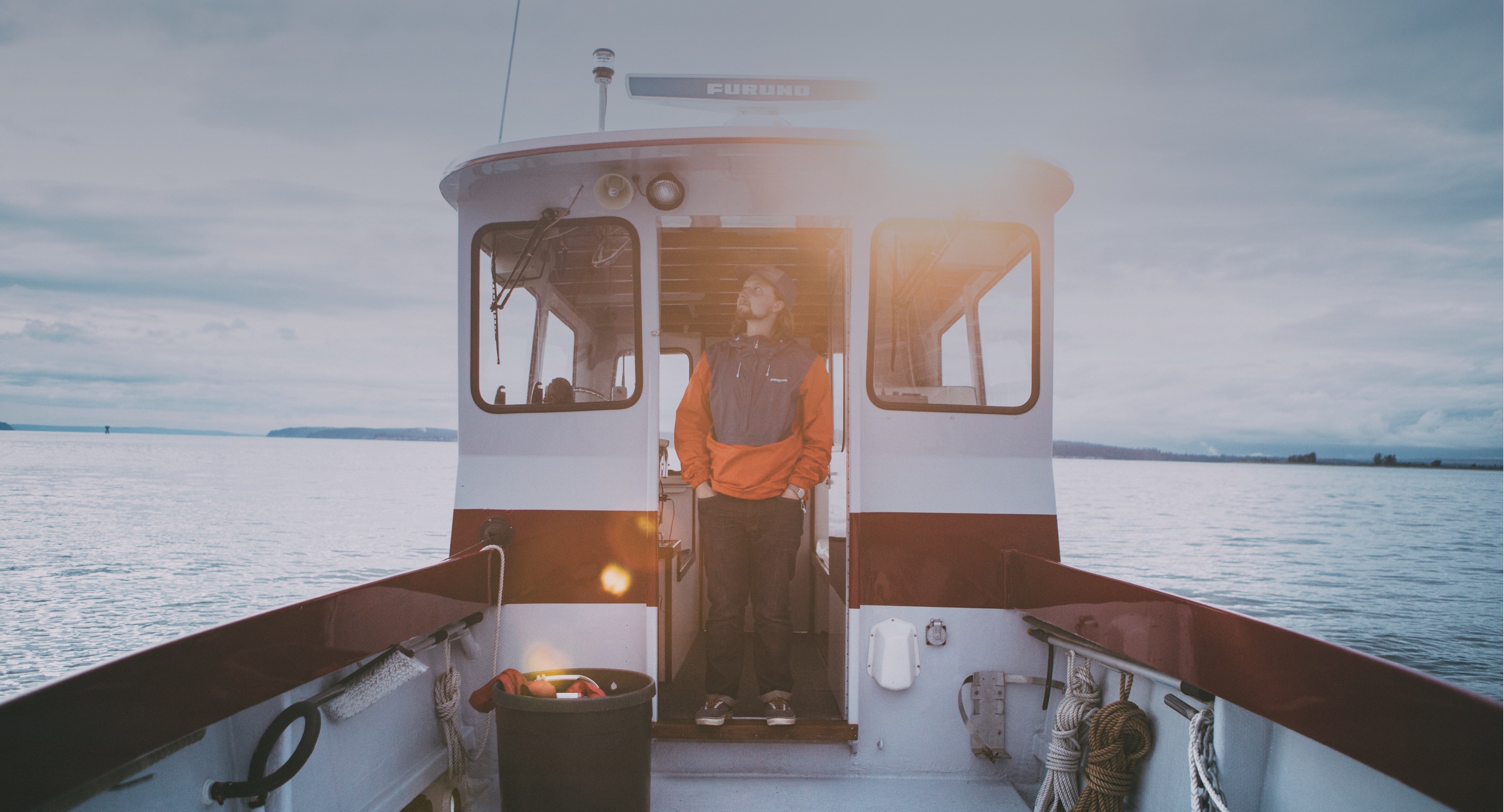
FCC LICENSE ONLINE
Follow our step-by-step process to get your FCC License
Get your Captains License Online
Follow the four step process to get your fcc license.
We help people get their Captains License and FCC License Our process is convenient, reliable, and proven. If you would like to talk with a captain’s licensing specialist or schedule an exam please call (866) 293-9308. We are here to help.
Get your Captain’s License
Follow our four-step process to get your captain’s license online: Enroll, Learn, Test, and Apply.
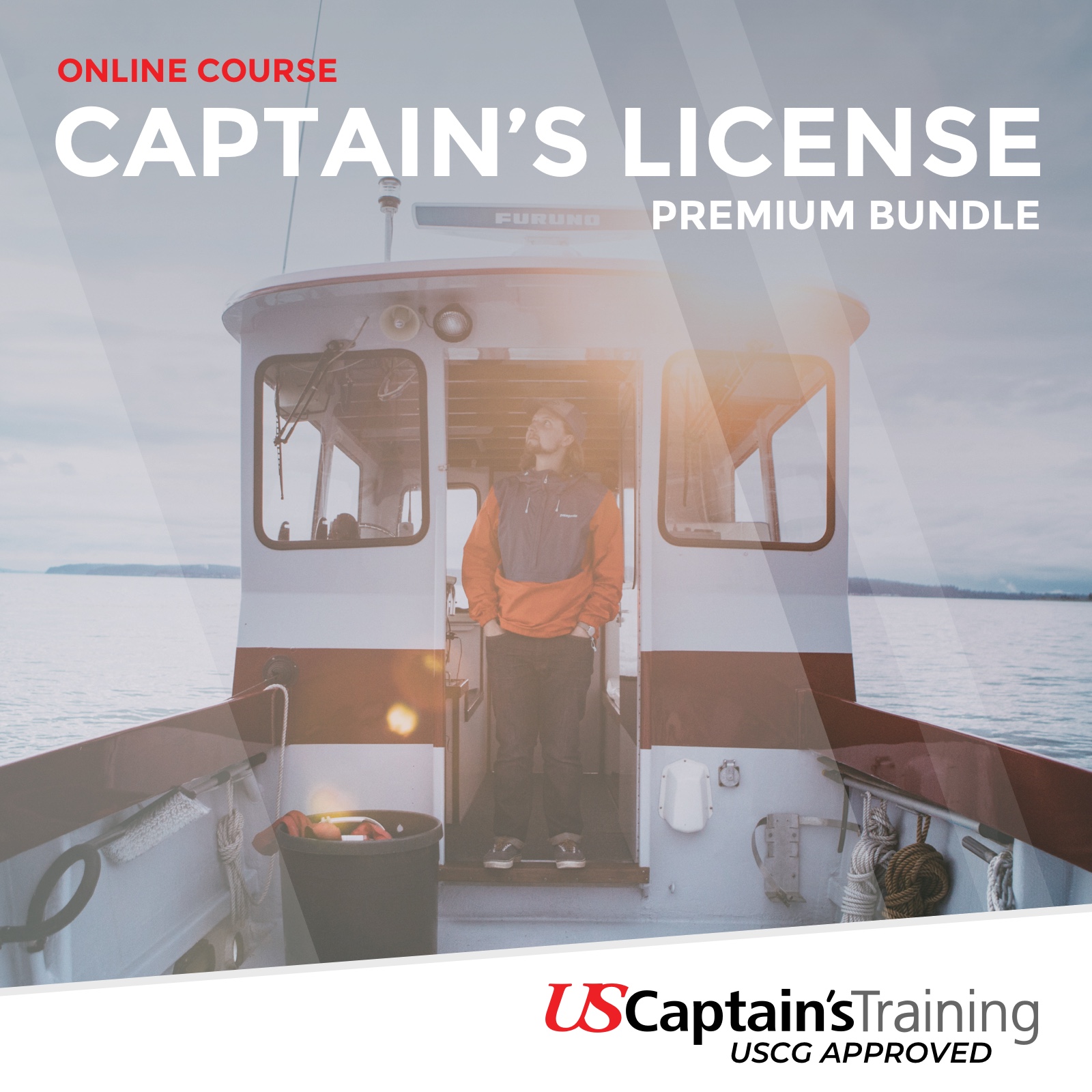
Get your FCC License
Mix and match FCC Elements to get the FCC License you want. Buy them all at once or one at a time.
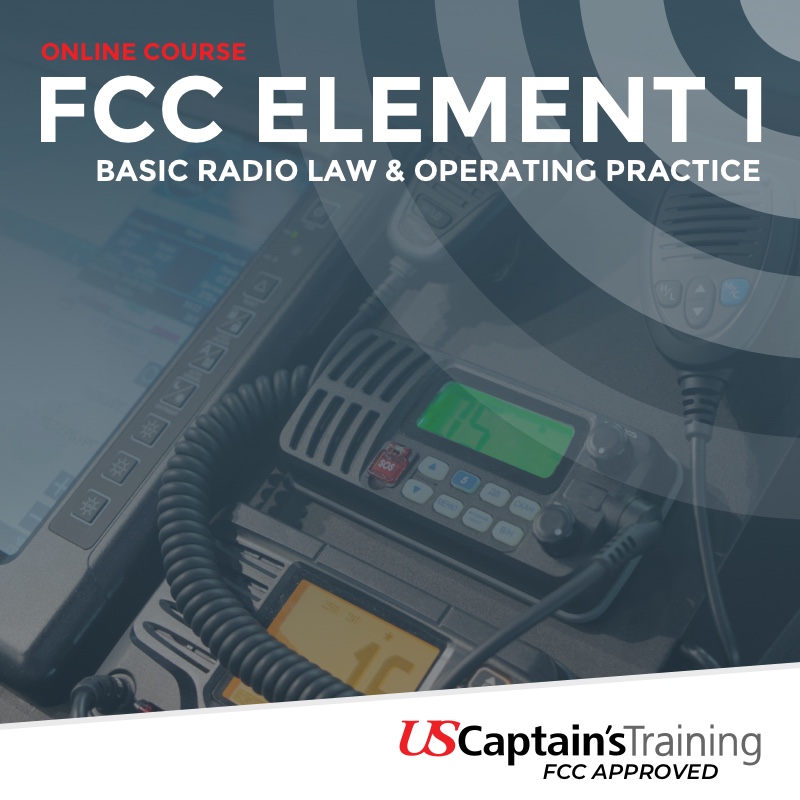
best online continuing education course I have taken!
This was the best online continuing education course I have taken! Material was to the point and well organized. Thank you.
Jeffrey B, Upgrade Master 100 to Master/Mate 200
Effective training methods
Effective training methods were utilized, really liked the way that the material was presented.
Patrick O., Master 100 & Upgrade Mate 200
Mark Pfander (Master and Towing)
Online course portion was easy to navigate and the instructors were very well informed. ~Mark Pfander (Master and Towing)
This course like the others I have taken over the years was exceptionally delivered. Great job and keep up the good work creating superb material to educate mariners!
Jeremy W., Assistance Towing
I couldn’t be more happy!
I was overwhelmed to study for these exams. This course through the help of captain John helped me study and feel very prepared for all the exams. I couldn’t be more happy with the prep this course gave me in achieving my goals.
Christopher G., Instructor Led Apprentice Mate (Steersman) Course
Online learning was beyond helpful!
Staff was responsive and helpful. Will definitely recommend and use in the future. The options for Online learning and testing is beyond helpful as the cost of travel and trying to find a class convening date that works with my schedule was not possible otherwise.
Mark S., Upgrade OUPV to Master 100 Course
Captain John’s knowledge is priceless!
I am very pleased with the course structure and how the material was broken down into a reasonable work load. I am especially happy with the organization of the course material. I was very impressed when Captain Neil Smith reached out to me in the beginning of the course when I had a minor issue getting started. He told me US captains was there for me and to call him on his cell if I needed anything. Any additional material ordered through the on-line website was sent in an expeditious manor. I also want to thank Captain John Stypolkoski for his excellent on-line class instruction. He helped simplify the information and made it easier to understand. His knowledge and experience that he was so willing to share was priceless.
Gerard M., Master 100 + Instructor Led Experience
Glad to have US Captain’s Training!
Glad to have DMS and US Captain’s Training to help me get thru the process of applying for Masters license & Sailing Aux.
Glen B., Master Captain’s License + Auxiliary Sail
Professional, responsive & timely. I’m grateful. Thank you.
Rick E., Upgrade Master 100 to Master/Mate 200
Excellent guidance and directions!
I received excellent guidance and directions through the entire process.
Don C., AB Course
When Do You Need a USCG Captain's License?
Need a USCG Captain's License? It's a must for commercial ops and varies by state for private boating. Know the requirements.
If you own a boat or yacht, you might be wondering if or when you need a captain’s license. And if you do, which license do you need? The last thing you want is to be stopped by the Coast Guard and be unprepared.
This article will answer all of your boating license requirement questions.

Private boat captain license requirements
One of the most common questions boat owners ask is whether they need a license or not to captain their boat. The simplest answer is if you’re taking any paying passengers on your boat, you need a captain’s license.
There are other state requirements that you must comply with. For example, California requires everyone to carry a California Boater Card while driving a vessel powered by a motor of 15 hp or more. You obtain a Boater Card by taking a short boating safety course. Many other states have similar laws that require you to complete a course, and carry proof.
These requirements vary by state, so make sure to check your state requirements.
Note that a state boating card is different from a Coast Guard Captain’s license. A boat safety course qualifies you to operate your personal boat, and have your friends and family on board.
A USCG license is needed when you’re operating a vessel in a commercial manner. When people are paying you, you need a license to operate.
The two common USCG licenses are the Master’s License and the OUPV license.
OUPV / Six-Pack License
The OUPV (Operator of an Uninspected Passenger Vessel) license is one of the most common licenses. As the name suggests, this license allows you to operate an Uninspected Vessel .
An Uninspected Vessel is limited to six paying passengers, which is why the OUPV license is also often called the Six Pack license .
People choose to get their OUPV license even if they never plan on taking paying passengers on their boat. Getting your license will teach you more about navigation and maritime safety compared to the basic boating safety course that most states require.
This license allows you to do small fishing trips, sightseeing tours, dive trips, and other commercial activities in the eyes of the USCG. There are may be other state requirements that you must comply with along with your Six Pack license such as a commercial charter fishing permit.
These requirements vary by state, so make sure to check your state requirements. The OUPV license is also limited to vessels that are 100 gross registered tons and under (about 80 feet long). Any OUPV license can be used for a 100 GRT vessel, but there are 3 different license types that qualify you for bodies of water: Inland, Great Lakes, and Near Coastal.
If you want to have more than 6 paying passengers, or captain a larger vessel, you’ll need to get your USCG Master’s License.
Master’s License
The Master’s License is required if you’re taking 7 or more paying passengers, and for USCG-inspected vessels. This license also qualifies you to captain uninspected vessels. To qualify for your Master’s License, you’ll need to complete the application form for Merchant Mariner Credentials (CG-719B form). And you will need a minimum of 360 days of documented sea service.
There are different Master Licenses that qualify you to captain different size vessels and on different waters. For example, a 50-Ton Master Near Coastal license qualifies you to captain a vessel up to 50 GRT in Near Coastal and Inland waters. You can always apply for a new endorsement or increase in scope, such as 50-Ton Inland to 50-Ton Near Coastal.
General License Requirements and Process
As mentioned above, you don’t need a USCG license for your personal boat or yacht, unless you want to use it for commercial purposes.
Here are the requirements and steps you need to take to get your USCG license.
Requirements
OUPV / Six Pack
- Ability to speak and understand English.
- U.S. Citizenship, or permanent residency.
- At least 18 years old.
- Valid Medical Certificate.
- Pass USCG-Approved Drug Test.
- Paid Mariner Fees.
- 360+ Days of Sea Service, 90+ Days within 3 years.
- Complete CG exam or approved course.
- USCG Approved CPR / FA within 1 year.
- At least 19 years old.
Licensing Process
1. decide which license you want..
You can upgrade your license from an OUPV to Master’s, or from a 25-Ton Master to 100-Ton Master, but it’s better to decide which license you want, and obtain that one first.
Read : Which USCG Captain's License Should You Choose?
2. Obtain a Transportation Worker Identification Card
A valid TWIC is required for all mariners getting their first United States Coast Guard-issued credentials.
3. Document Sea Days
USCG licenses require 360 sea days and 90 of those days within the past 3 years. You’ll complete a CG 719S form and attach it to your application. The vessel and waters you were on during that time will determine the endorsement you receive.
You will be required to complete a general physical exam. Any physician, physician assistant, or nurse practitioner who is licensed in the U.S. or U.S. Territory can sign off on your medical exam on the CG-719K form.
5. Drug Test
You will need to have negative drug test results within 185 days of your application. The test must be a DOT | USCG 5 Panel testing for Marijuana, Cocaine, Opiates, Phencyclidine, and Amphetamines. The USCG won’t accept any other drug test.
6. First Aid/CPR
You will need to complete an in-person First Aid and CPR course within the past 12 months. We recommend finding an American Red Cross First Aid and CPR course near you.
7. Pay.gov Fees
The last step in this process before submitting your application is to pay the Mariner fees. The costs vary depending on the endorsement type and course fees. When you submit your application using MM-SEAS Perfect Application, the Pay.gov fees are included.
8. Submit Your Application
To get your MMC, you’ll need to complete and submit the CG-719B form. To get your MMC with the proper endorsements, you’ll need to provide proof of your sea service, that you have a TWIC or applied for one, and that you’ve paid your required fees.
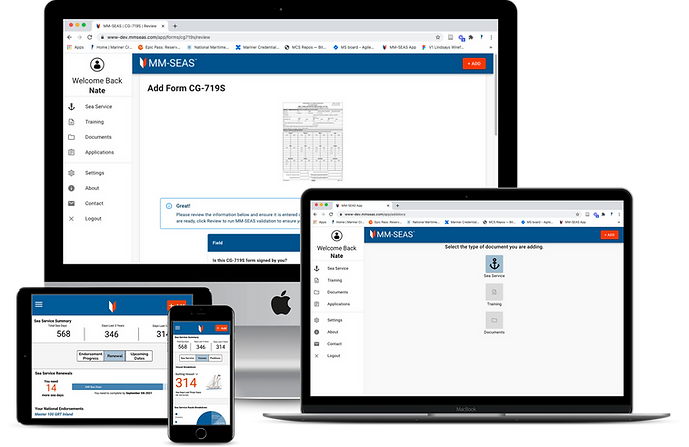
We hope this made your life a little easier and if you have other questions the MM-SEAS team is always here to help!
MM-SEAS is free to use on your own and if you need some more personalized help you can upgrade to MM-SEAS Pro inside of the site.
No matter what, when you are ready to submit your application, you can choose to have the MM-SEAS staff create a perfect application, handle the USCG application fees and work with the USCG on your behalf to resolve any issues for a flat fee of $349 or you can choose to submit on your own.
Pro MM-SEAS members get access to unlimited live 1 on 1 calls with one of our USCG Licensing Specialists. We've found that answering questions live with screen sharing in a video call makes both of our lives easier. Pro MM-SEAS members can access these features inside of MM-SEAS under License Guidance.
Need to renew, upgrade or get your first USCG license? We're here to help.
About the author.

Sam Mckay is a NOAA Corps Veteran working on his PhD in Nuclear Fusion
.webp)
- Bottom Painting & Prop Speed
- Fiberglass & Paint Work
- Running Gear & Valves
- Full-Service Team
- Monthly Maintenance Programs
- Dockside Service Team
- Full-Service Boatyard
- Management Services
- Accounting & Reporting
- Relevant Management Experience
- News and Media
Do You Need a License to Drive a Yacht?
Owning a yacht embodies luxury, freedom, and adventure on the open waters. However, amid the allure of yacht ownership, there's a critical aspect often overlooked—the necessity of possessing a valid yacht license. This article delves into why having a license to drive a yacht is indispensable for aspiring owners. But do you need a license to drive a yacht? The team at Yacht Management , a leading provider of yacht maintenance services, provides all the information you need to know here.
What to Know About Yacht Ownership

What to Know About Yacht Ownership As a leading yacht maintenance company, we understand that yacht ownership represents the epitome of luxury and an unparalleled sense of freedom in the realm of maritime indulgence. It embodies an aspirational lifestyle coveted by many, symbolizing not just a possession but being amid a world of opulence and unparalleled experiences.
The allure of owning a yacht extends beyond mere ownership. It encapsulates the spirit of adventure and the thrill of exploration on the open seas. Picture the sheer liberation of charting your course, unfettered by land-bound constraints, navigating through pristine waters to your chosen destinations. It's a lifestyle that harmonizes luxury with the freedom to explore remote coves, pristine islands, and exotic locales, all within the sanctum of your private vessel.
Yacht ownership is more than a status symbol; it's a gateway to a unique way of life where one can escape the ordinary and immerse oneself in the extraordinary. The sensation of being surrounded by boundless azure horizons, the sun painting the sky in hues of gold during sunset cruises, and the gentle rhythm of waves against the hull—all contribute to an unmatched sense of liberation and tranquility.
Owning a yacht brings unparalleled freedom, allowing one to embrace the spontaneity of travel and the luxury of seafaring without limitations. It's an embodiment of personal expression, where the yacht becomes an extension of one's identity, reflecting individual tastes and desires amidst the vast expanse of the ocean.
Being a yacht owner is not solely about possessing a magnificent vessel; it's an invitation to a lifestyle where luxury, adventure, and the boundless freedom of the seas converge, creating an experience that transcends the ordinary and defines the extraordinary. But do you need a license to drive a yacht and make the lifestyle your everyday experience?
Why Having a License for a Yacht Is So Important
There is more to know beyond answering the question, "Do you need a license to drive a yacht?" Knowing why you want one to be in your possession is important. Below are some of the main points our yacht service experts want you to remember.
Legal Compliance and Regulations of a Florida Boating License
The operation of a yacht demands meticulous adherence to a myriad of legal frameworks and maritime regulations. These encompass licensing requirements, registration obligations, and adherence to safety standards stipulated by international and regional maritime bodies. Understanding and complying with these legal mandates is not merely a formality. It is the cornerstone of responsible yachting. Moreover, a profound comprehension of maritime laws ensures the safety of all onboard, mitigating risks and fostering a secure environment for crew and passengers alike.
Mastery of Navigation at Sea
Navigating a yacht presents unique challenges that demand a comprehensive grasp of navigation techniques. Unlike land-based travel, yachting requires proficiency in understanding nautical charts, interpreting weather patterns, and employing navigation tools specific to maritime environments. Mastering these skills is imperative for ensuring safe passage, efficient handling of the vessel, and the ability to navigate diverse and often unpredictable waterways.
Handling Emergencies at Sea The vastness of the seas brings with it the potential for unforeseen emergencies. From inclement weather conditions to mechanical failures, being equipped to address these difficulties is non-negotiable. A thorough understanding of emergency protocols, swift decision-making in crisis scenarios, and possessing the skill set to manage emergencies effectively are paramount. Whether it involves first aid proficiency, knowledge of distress signals, or executing evacuation procedures, preparedness is vital to ensuring the safety and well-being of everyone aboard. Do you need a license to drive a yacht and handle these emergencies? The experience comes with the practice that only a license will present to you.
Obtaining a license to drive a yacht extends far beyond a legal requirement. It embodies a commitment to safety, proficiency, and responsible seamanship. Mastery of maritime laws, navigation skills, and preparedness in handling emergencies form the bedrock of a conscientious and adept yacht operator, ensuring not just compliance but also the safety and security of all involved in the yachting experience.
The Process of Obtaining a Florida Yacht License "Do you need a license to drive a yacht?" This question often marks the outset of one's journey toward navigating the world's waters aboard one's own vessel. Addressing this query initiates a multifaceted process involving stringent prerequisites and comprehensive training to ensure the mastery of essential skills integral to responsible yacht operation. Our yacht care professionals are masters in all things related to navigation. Here, they present things you must know when you are undergoing the process of obtaining your license.
Florida Boat License Requirement and Training Acquiring a yacht license requires fulfilling specific prerequisites that vary depending on the region and the license type sought. Typically, applicants must meet age requirements, undergo a thorough medical examination to ensure physical fitness and complete a specified number of logged sea hours. A fundamental understanding of maritime laws and navigation principles is also essential through formal education or training courses.
Training programs for yacht licensing encompass a comprehensive curriculum covering seamanship, navigation techniques, safety protocols, and emergency procedures. These programs, often conducted by certified maritime institutions or accredited training centers, offer theoretical instruction complemented by practical, hands-on experience aboard vessels. They equip aspiring yacht operators with the knowledge and skills necessary to navigate, operate, and manage a yacht proficiently and safely.
Variations of the License for Boating in Florida Yacht licenses vary in scope and designation, catering to different yacht sizes, navigational zones, and purposes. Common categories include licenses for recreational yachts, commercial vessels, and specific endorsements for operating in coastal or open waters. Licenses may also differ based on propulsion systems, accommodating both sail and motor yachts. The scope ranges from inland waterways to unrestricted navigation in international waters, reflecting varying degrees of competency and experience required for each category.
Beyond the fundamental yacht license, endorsements or supplementary certifications augment an operator's skill set. These endorsements often focus on specialized areas such as offshore sailing, handling specific types of vessels, or certifications in advanced navigation techniques. Additionally, safety and first aid, radio operation, or environmental stewardship certifications further enhance an operator's capabilities and preparedness, ensuring a comprehensive skill set for navigating diverse yachting scenarios.
Obtaining a yacht license involves meeting prerequisites, undergoing rigorous training, and selecting the appropriate license category tailored to one's yachting ambitions. Furthermore, pursuing endorsements and supplementary certifications enriches an operator's proficiency and preparedness, ensuring a well-rounded skill set for navigating the complexities of yachting.
Get in Touch With a Leader Among Yacht Maintenance Companies
Do you need a license to drive a yacht? Yes! It won't only prove essential in legal and regulatory matters. It will also provide the necessary experience and practice to captain a vessel confidently.
But if you're seeking a partner to care for your watercraft, don't settle for just any South Florida yacht maintenance company. Team up with the experts at Yacht Management for unmatched care. If you're interested in learning more, feel free to reach out to our team today or call our team directly to speak with a representative today.
Be sure to also take a look at our yachting blog for a deep dive into several topics our professionals regularly cover. Take your yachting experience to the next level with the help of seasoned experts who call the ocean home and their clients a commitment to excellence that will be met.
Related Readings:
- A Beginner’s Guide to Boat Navigation
- The Art of Luxury Yacht Provisioning
- Reasons to Hire a Boat Captain

For all inquiries, fill out the form below and a member of our team will respond as soon as possible
Category : Gorodok factory
Subcategories.
This category has only the following subcategory.
- Gorodok pipe bridge (7 F)
Media in category "Gorodok factory"
The following 41 files are in this category, out of 41 total.

- Factories in Pavlovsky Posad
- Gorodok (Pavlovsky Posad)
- 1900s architecture in Russia
- Weaving mills in Russia
- Brick architecture in Pavlovsky Posad
- Uses of Wikidata Infobox
- Uses of Wikidata Infobox with maps
- Pages with maps
Navigation menu

COMMENTS
To be a Captain, one must be in good health and of reasonable physical ability. The Medical form ( CG-719K) is the most extensive form one will need to complete. It also requires the signature of a licensed physician. Unlike an FAA pilot's license, the physician need not be approved by the US Coast Guard.
Important sea service requirements for Master Inland/GL: Must be at least 19 years old. Must be able to document 360 days of experience on a vessel. (See: What Counts as Sea Service) 90 days of sea service must be within the last 3 years of when you apply. The tonnage of the license (25 Ton, 50 Ton, or 100 Ton) that you get, is determined by ...
The overall cost of getting your captain's license to operate commercial vessels can be anywhere from $500 to $800 or more depending on the course you choose. These costs will include your exam expenses, license requirements and additional fees associated with your license application. 6.
Basic Captain's License Requirements. The most common captain's license is the OUPV or Six-Pack, which allows you to commercially captain a vessel with up to six passengers. To earn this license, you must: Be 18 or older. Have legal status to work in the U.S. Pass a drug test and a physical. Acquire a Transportation Worker Identification ...
Mariners provides flexible and convenient boat captain course training so you can learn on your schedule, not ours. Take your final licensing exam online and on-demand. Start with our OUPV/Six-Pack License for up to 6 passengers, or if captaining a large vessel, check out our 25/50 or 100-Ton Masters.
This skipper's license will qualify you to captain a sailboat at sea in local waters from sunrise to sunset. Local waters are defined as 15 nautical miles, or 25 miles, from your home port, given that they are no more than 15 nautical miles from an approved safe haven. Local Waters Skipper. Holding this license, you will be qualified to ...
Upon the Coast Guard's review and approval, you will be issued your boat captain's license. 2 HOW MUCH DOES A USCG CAPTAIN'S LICENSE COURSE COST? The most popular captain's license course we offer is the OUPV/Six-Pack Captain's License - Online Course and Exam. For those looking to obtain the higher level license, check out the 25/50 or 100 ...
The master captain's license requirements include that you are at least 19 years old and a U.S. citizen. How to become a boat captain 1. Captains license sea time requirements. To qualify for a USCG captain's license you must have a minimum of 360 days of sea service; of which 90 days must be in the last three years ("recency" clause ...
Our expert team of USCG-licensed captains are ready to help you chart your course. Connect with us today! Join At The Helm Training for USCG accredited boating courses. Discover hands-on training with experienced captains and learn boat safety in Florida today!
The two main captain's licenses issued by the Coast Guard are the Operator of Uninspected Passenger Vessels, also known as the Six-Pack or charter boat captain's license, and the 25, 50, or 100-Ton Master License. The Six-Pack Captain's License allows the holder to carry up to six paying passengers plus crew on uninspected vessels up to ...
We have been in business for over 42 years with convenient locations along the Eastern Seaboard, Gulf Coast and the Caribbean. Our Coast Guard approved instructors are the best in the industry. Whether you're new to the maritime world or an "Old Salt", Sea School has you covered. We never forget that you're the customer and your career goals ...
5 mins read・Mar 06, 2023. The first step you need to take to get your captain's license is to decide which type of license you're going to pursue. There are two main types of Coast Guard licenses: License Type #1 - 25 ton, 50 ton, or 100 ton Master License. License Type #2 - Operator of Uninspected Passenger Vessels (OUPV or Six Pack)
Applicants must meet the U.S. Coast Guard (USCG) minimum age requirements to be eligible for a USCG Captain's license. Generally, the minimum age is 18 years for an OUPV (Operator of Uninspected Passenger Vessels) License and 19 years for higher-level licenses, such as the Master or Mate License. Verifying the specific age requirements for the ...
Captain's License. Below is all the information you need to know about how to obtain your United States Coast Guard Operator of Uninspected and/or Inspected Passenger Vessels License OUPV/Six-Pack Captain's License or 25/50 or 100 Ton Master Captain's License. The Foolproof Guide to Captain's License will take you through the steps like ...
Becoming a boat captain is a dream shared by many for a variety of reasons, both personal and financial. Take the first step toward getting your license today with our definitive guide! This free eBook on Captain's Licenses will provide insight and information to help you easily navigate the licensing process.
Captains License and FCC License Our process is convenient, reliable, and proven. If you would like to talk with a captain's licensing specialist or schedule an exam please call (866) 293-9308. If you would like to talk with a captain's licensing specialist or schedule an exam please call (866) 293-9308.
The Master's License is required if you're taking 7 or more paying passengers, and for USCG-inspected vessels. This license also qualifies you to captain uninspected vessels. To qualify for your Master's License, you'll need to complete the application form for Merchant Mariner Credentials (CG-719B form). And you will need a minimum of ...
May 15, 2021. Owning a yacht embodies luxury, freedom, and adventure on the open waters. However, amid the allure of yacht ownership, there's a critical aspect often overlooked—the necessity of possessing a valid yacht license. This article delves into why having a license to drive a yacht is indispensable for aspiring owners.
Posted by u/Alternative-You-4549 - 1 vote and no comments
Miami biotech entrepreneur Jonathan Rothberg's 182-foot yacht, the Gene Chaser (right), is docked at a marina on Watson Island on Tuesday, May 21, 2024. Another boat that Rothberg owns, a 42 ...
To be the captain of a ship with more than six paying passengers, a Master's license is necessary. The key is that if you plan to take paying passengers on waterways navigable by the Army Corps of Engineers (which includes most U.S. waterways), then yes, a captain's license is required. 5 SAILBOAT CAPTAIN'S LICENSE VS. ASA AND US SAILING COURSES.
596K subscribers in the vexillology community. A subreddit for those who enjoy learning about flags, their place in society past and present, and…
Elektrostal is a city in Moscow Oblast, Russia, located 58 kilometers east of Moscow. Elektrostal has about 158,000 residents. Mapcarta, the open map.
Main page; Contents; Current events; Random article; About Wikipedia; Contact us; Donate; Pages for logged out editors learn more
Media in category "Gorodok factory" The following 41 files are in this category, out of 41 total.